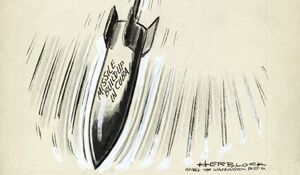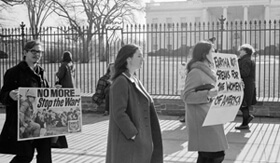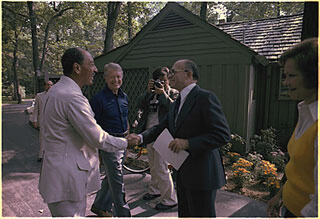The curated resources linked below are an initial sample of the resources coming from a collaborative and rigorous review process with the EAD Content Curation Task Force.
 Reset All
Reset All
This unit plan deeply explores the motives, pressures, and fears that shaped Americans’ responses to Nazism and the humanitarian refugee crisis it provoked during the 1930s and 1940s. Students will examine why widespread American sympathy for the plight of Jewish refugees never translated into widespread support for prioritizing their rescue.

The Roadmap




Facing History and Ourselves


This lesson gives students the opportunity to interact with historical newspapers available through Chronicling America and read the conflicting viewpoints of America's opinion leaders and ordinary citizens. Students will engage in dialogue as they struggle to decide: should the Unites States remain neutral or join the fight?

The Roadmap



National Endowment for the Humanities


This lesson gives students the opportunity to interact with historical newspapers available through Chronicling America and read the conflicting viewpoints of America's opinion leaders and ordinary citizens. Students will engage in dialogue as they struggle to decide: should the Unites States remain neutral or join the fight?

The Roadmap



National Endowment for the Humanities


This unit of lessons and tools examines the executive branch of the United States and the office of the President.

The Roadmap



iCivics, Inc.


Students play a game modeled on the classic ‘Tragedy of the Commons’ economic theory to explore the problem of collective action in managing the Earth’s resources. They reflect on the way their short-term self-interest clashes with the long-term interest of the collective. Students identify strategies that will help them to act in the collective interest of the human race and the planet.
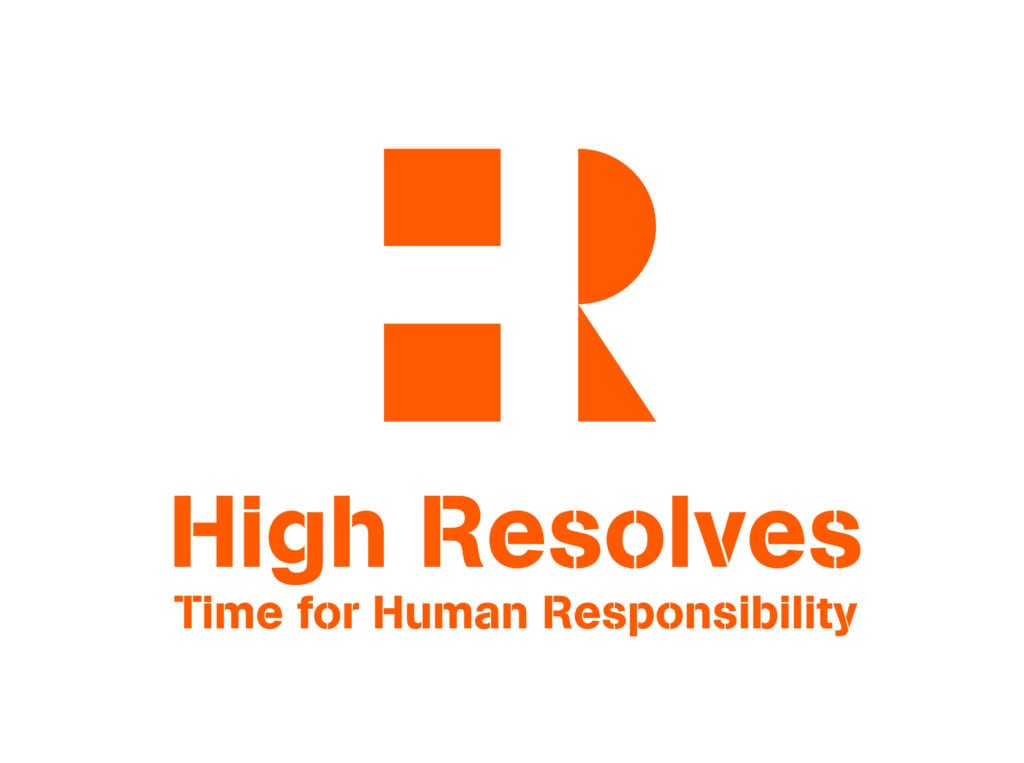
The Roadmap


High Resolves


In many ways, the history of the US has been shaped by the movement of people. People came to America searching for gold as early as the fifteenth century, while others sought religious freedom and increased economic mobility. Millions of others were forced here against their will. This primary source set will spotlight the causes and impacts of migration and movement, focusing primarily on the nineteenth and twentieth centuries. Contexts include slavery, Black migration after the abolition of slavery, immigration to the United States and the immigrant experience, Dust Bowl migration, westward movement by European Americans, and Indigenous relocation and removal. Recognizing that movement often occurs after and during transition or change, this source kit will also highlight several catalysts that brought about migration and movement, some occurring at the same moment in history. These primary sources will also present varying attitudes and perceptions toward migration and movement spanning this period. This topic could be expanded by comparing migration patterns as early as the colonial period and as recent as today.
The resources in this spotlight kit are intended for classroom use, and are shared here under a CC-BY-SA license. Teachers, please review the copyright and fair use guidelines.






The Roadmap




























- Primary Resources by Era/Date1700s (1)1800s (16)1900s (12)
- All 29 Primary ResourcesU.S. Constitution, Article 1, Section 9 (1787)
This clause of the United States Constitution is seen as both a temporary protection for the slave trade and as a clear indication that enslaved people were not considered United States citizens under the Constitution.
United States Constitution, Article I: Legislative BranchSection 9 : Powers Denied Congress Clause 1 Migration or Importation The Migration or Importation of such Persons as any of the States now existing shall think proper to admit, shall not be prohibited by the Congress prior to the Year one thousand eight hundred and eight, but a Tax or duty may be imposed on such Importation, not exceeding ten dollars for each Person.
CitePrintShare“Article I Section 9 | Constitution Annotated | Congress.gov | Library of Congress.” Constitution Annotated, https://constitution.congress.gov/browse/article-1/section-9/.
A letter from President Andrew Jackson to the Cherokee Nation about the benefits of voluntary removal, March 16, 1835A letter from President Andrew Jackson to the Cherokee Nation about the benefits of voluntary removal, March 16, 1835TranscriptMy Friends:
I have long viewed your condition with great interest. For many years I have been acquainted with your people, and under all variety of circumstances, in peace and war. Your fathers were well known to me, and the regard which I cherished for them has caused me to feel great solicitude for your situation….
You are now placed in the midst of a white population…. Most of your people are uneducated, and are liable to be brought into collision at all times with their white neighbors. Your young men are acquiring habits of intoxication. With strong passions, and without those habits of restraint which our laws inculcate and render necessary, they are frequently driven to excesses which must eventually terminate in their ruin. The game has disappeared among you, and you must depend upon agriculture and the mechanic arts for support. And, yet, a large portion of your people have acquired little or no property in the soil itself, or in any article of personal property which can be useful to them. How, under these circumstances, can you live in the country you now occupy? Your condition must become worse and worse, and you will ultimately disappear, as so many tribes have done before you.
Of all this I warned your people, when I met them in council eighteen years ago. I then advised them to sell out their possessions east of the Mississippi and to remove to the country west of that river. This advice I have continued to give you at various times from that period down to the present day, and can you now look back and doubt the wisdom of this counsel?....
President Andrew Jackson signed the Indian Removal Act into law in 1830. This law granted the President the ability to exchange land west of the Mississippi for Indigenous territories within the boundaries of existing states. An additional act was passed in 1834. This act designated land, including what would later become the state of Oklahoma, as Indian Territory. As a result of the precedent set by these acts, over sixty tribes were either willingly or forcibly removed from their lands over the next fifty years.
CitePrintShareJackson, Andrew, “To the Cherokee tribe of Indians east of the Mississippi River,” Digital Public Library of America, https://dp.la/primary-source-sets/cherokee-removal-and-the-trail-of-tears/sources/1506
George Catlin, Wi-jún-jon, Pigeon's Egg Head (The Light) Going To and Returning From Washington (1837-1839)The Smithsonian American Art Museum explains: “Catlin mistranslated Ah-jon-jon, whose name means ‘The Light,’ as ‘Pigeon's Egg Head.’ The Light was an Assiniboine leader who was invited in 1831 to represent his tribe in Washington. During a winter in the nation's capital, he traded his native dress for European clothes and customs. In Catlin's before-and-after portrait, the once proud warrior, with a liquor bottle in his pocket, swaggers in high-heeled boots and carries a fan and umbrella. For Catlin, this transformation illustrated the tragic gulf between Native American and white cultures.”
CitePrintShareGeorge Catlin, Wi-jún-jon, Pigeon's Egg Head (The Light) Going To and Returning From Washington, 1837-1839, oil on canvas, Smithsonian American Art Museum, Gift of Mrs. Joseph Harrison, Jr., 1985.66.474. Retrieved from https://americanart.si.edu/artwork/wi-jun-jon-pigeons-egg-head-light-going-and-returning-washington-4317.
Letter from Chief John Ross, "To the Senate and House of Representatives" (1836)TranscriptA spurious Delegation, in violation of a special injunction of the general council of the nation, proceeded to Washington City with this pretended treaty, and by false and fraudulent representations supplanted in the favor of the Government the legal and accredited Delegation of the Cherokee people, and obtained for this instrument, after making important alterations in its provisions, the recognition of the United States Government. And now it is presented to us as a treaty, ratified by the Senate, and approved by the President [Andrew Jackson], and our acquiescence in its requirements demanded, under the sanction of the displeasure of the United States, and the threat of summary compulsion, in case of refusal. It comes to us, not through our legitimate authorities, the known and usual medium of communication between the Government of the United States and our nation, but through the agency of a complication of powers, civil and military.
By the stipulations of this instrument, we are despoiled of our private possessions, the indefeasible property of individuals. We are stripped of every attribute of freedom and eligibility for legal self-defense. Our property may be plundered before our eyes; violence may be committed on our persons; even our lives may be taken away, and there is none to regard our complaints. We are denationalized; we are disfranchised. We are deprived of membership in the human family! We have neither land nor home, nor resting place that can be called our own. And this is effected by the provisions of a compact which assumes the venerated, the sacred appellation of treaty.
In 1835, in the “Treaty of New Echota,” a group of Cherokees – without consent of the majority of their nation – agreed that the Cherokee people would move West and vacate their land. This letter, a protest against the Treaty, was sent by Chief John Ross and other Cherokee leaders to Congress in an effort to declare that treaty invalid.
CitePrintShare“Transcript for papers-of-john-ross-original-text.” National Museum of the American Indian, https://americanindian.si.edu/nk360/removal-cherokee/transcripts/papers-of-john-ross-original-text.html.
“Africans in America/Part 4/John Ross letter.” PBS, https://www.pbs.org/wgbh/aia/part4/4h3083t.html
Physician's Monthly Report of Emigrating Cherokees at Chadata (1838)During the fall and winter of 1838 and 1839, the Cherokees were forcibly marched from their lands. Known as the “Trail of Tears,” this forced removal resulted in the deaths of thousands of Cherokee. The Choctaw, the Chickasaw, the Creek, and the Seminole also were forced to travel along the trail of tears.
CitePrintSharePhysician's Monthly Report of Emigrating Cherokees at Chadata in August 1838; 8/1838; Special Files, ca. 1840 - ca. 1904; Records of the Bureau of Indian Affairs, Record Group 75; National Archives Building, Washington, DC. [Online Version, https://www.docsteach.org/documents/document/physicians-report-cherokees, February 12, 2022]
Drexler, K. (2019, January 22). Research Guides: Indian Removal Act: Primary Documents in American History: Introduction. Library of Congress. Retrieved February 1, 2022, from https://guides.loc.gov/indian-removal-act.
Death of Captain Ferrer, the Captain of the Amistad (1839)In 1839, the enslaved people aboard the Amistad were captured by Portuguese slave traders in Sierra Leone, and they were being taken to a Caribbean plantation. The enslaved Africans seized control of the ship, killed two of their captors, and ordered the ship to sail to Africa, but it was seized off of the coast of Long Island and the enslaved Africans were brought to trial in Connecticut. As the National Archives explains, “Had it not been for the actions of abolitionists in the United States, the issues related to the Amistad might have ended quietly in an admiralty court. But they used the incident as a way to expose the evils of slavery and generate significant opposition to the practice.” In an appeal before the U.S. Supreme Court, John Quincy Adams “passionately and eloquently defended the Africans' right to freedom on both legal and moral grounds, referring to treaties prohibiting the slave trade and to the Declaration of Independence. The Supreme Court decided in favor of the Africans, stating that they were free individuals.”
CitePrintShareSchomburg Center for Research in Black Culture, Manuscripts, Archives, and Rare Books Division, The New York Public Library. (1840). Death of Captain Ferrer, the Captain of the Amistad, July 1839. Retrieved from https://digitalcollections.nypl.org/items/510d47e3-1a6d-a3d9-e040-e00a18064a99
“The Amistad Case | National Archives.” National Archives |, 2 June 2021, https://www.archives.gov/education/lessons/amistad#background.
Treaty of Guadalupe Hidalgo (1848)TranscriptFebruary 2, 1848
In the name of Almighty God
The United States of America and the United Mexican States animated by a sincere desire to put an end to the calamities of the war which unhappily exists between the two Republics and to establish Upon a solid basis relations of peace and friendship, which shall confer reciprocal benefits upon the citizens of both, and assure the concord, harmony, and mutual confidence wherein the two people should live, as good neighbors have for that purpose appointed their respective plenipotentiaries, that is to say….
ARTICLE I
There shall be firm and universal peace between the United States of America and the Mexican Republic, and between their respective countries, territories, cities, towns, and people, without exception of places or persons….
ARTICLE VIII
Mexicans now established in territories previously belonging to Mexico, and which remain for the future within the limits of the United States, as defined by the present treaty, shall be free to continue where they now reside, or to remove at any time to the Mexican Republic, retaining the property which they possess in the said territories, or disposing thereof, and removing the proceeds wherever they please, without their being subjected, on this account, to any contribution, tax, or charge whatever.
Those who shall prefer to remain in the said territories may either retain the title and rights of Mexican citizens, or acquire those of citizens of the United States. But they shall be under the obligation to make their election within one year from the date of the exchange of ratifications of this treaty; and those who shall remain in the said territories after the expiration of that year, without having declared their intention to retain the character of Mexicans, shall be considered to have elected to become citizens of the United States….
ARTICLE IX
The Mexicans who, in the territories aforesaid, shall not preserve the character of citizens of the Mexican Republic, conformably with what is stipulated in the preceding article, shall be incorporated into the Union of the United States, and be admitted at the proper time (to be judged of by the Congress of the United States) to the enjoyment of all the rights of citizens of the United States, according to the principles of the Constitution; and in the mean time, shall be maintained and protected in the free enjoyment of their liberty and property, and secured in the free exercise of their religion without; restriction.
Article XI
Considering that a great part of the territories, which, by the present treaty, are to be comprehended for the future within the limits of the United States, is now occupied by savage tribes, who will hereafter be under the exclusive control of the Government of the United States, and whose incursions within the territory of Mexico would be prejudicial in the extreme, it is solemnly agreed that all such incursions shall be forcibly restrained by the Government of the United States whensoever this may be necessary; and that when they cannot be prevented, they shall be punished by the said Government, and satisfaction for the same shall be exacted all in the same way, and with equal diligence and energy, as if the same incursions were meditated or committed within its own territory, against its own citizens.
The Treaty of Guadalupe Hidalgo held a direct correlation to westward movement and migration. Americans forged west with the discovery of gold in 1848 at Sutter’s Mill in California which was the first major gold rush in the United States. By the following year, tens of thousands of “forty-niners” had come to the area in hopes of striking it rich. Most did not become wealthy in California, but many stayed there. The region continued to grow rapidly, and, in 1850, California became a state. With the expansion of available land and the gold rush, people from all over the USA and the world came and new businesses developed, including the pony express, transcontinental railroad jobs, Chinese laundry, the cattle industry, and free and enslaved Africans seeking freedom.
CitePrintShareTreaty of Guadalupe Hidalgo. BlackPast, B. (2007, January 24). (1848) Treaty of Guadalupe Hidalgo. BlackPast.org. https://www.blackpast.org/african-american-history/treaty-guadalupe-hidalgo/
https://www.blackpast.org/african-american-history/treaty-guadalupe-hidalgo/
Engraving of the Box in which Henry Box Brown Escaped from Slavery (1850)Engraving of the box in which Henry Box Brown escaped from slavery in Richmond, Va.The Fugitive Slave Act was passed in 1850 as part of the Compromise of 1850, a series of laws designed to ease sectional tensions between the North and South. The law benefitted southern enslavers by requiring northern law enforcement to assist in capturing and returning enslaved persons who had run away from their enslavers. Southern bounty hunters were also permitted to operate in the North. The law put both enslaved and free Blacks at risk. After the law was passed, thousands of freedom seekers attempted to escape to free states in the North and Canada as well, where they would be beyond the reach of the law.
CitePrintShareBrown, H. B. (1850) Engraving of the box in which Henry Box Brown escaped from slavery in Richmond, Va. Song, sung by Mr. Brown on being removed from the box. Boston Laing's Steam Press, 1-1-2 Water Street. 185-?. Boston. [Pdf] Retrieved from the Library of Congress, https://www.loc.gov/item/rbpe.06501600/.
Parks, L. (1852) Poster offering fifty dollars reward for the capture of a runaway slave Stephen. Parks' Landing. [Pdf] Retrieved from the Library of Congress, https://www.loc.gov/item/rbpe.00101200/.
Poster Offering Fifty Dollars Reward for the Capture of a Runaway Slave Stephen (1852)Poster Offering Fifty Dollars Reward for the Capture of a Runaway Slave Stephen (1852)Mining life in California--Chinese miners (1857)Mining life in California--Chinese miners (1857)During the peak of the Gold Rush, over 20,000 Chinese men immigrated to the United States to mine gold in California. Chinese immigrant labor contributed significantly to not only the mining industry, but also the expansion of the national railroad and the development of services supporting laborers. Nonetheless, xenophobic, anti-Chinese sentiment rose in California and nationally, ultimately leading to both the Chinese Massacre of 1871 (in which a violent mob lynched 18 Chinese men) and the Chinese Exclusion Act of 1882.
CitePrintShare(1857) Mining life in California--Chinese miners. California, 1857. [Photograph] Retrieved from the Library of Congress, https://www.loc.gov/item/2001700332/.
The Fugitive Slave Law and its Victims, excerpt (1861)The Fugitive Slave Law and its Victims, excerpt (1861)This book, The Fugitive Slave Law and its Victims, published in 1861, was an antislavery text, arguing for the abolition of slavery by providing accounts of the Fugitive Slave Laws’ effects and victims. The book was published by the American Anti-Slavery Society in New York.-
CitePrintShareMay, Samuel, “The fugitive slave law and its victims,” Digital Public Library of America, http://dp.la/item/2a8c4dcae9bc48e9da5bcd5e8269105a.
The Carpet-bagger (1868)The Carpet-bagger (1868)Popular images and music from the former Confederate states during Reconstruction created the image of the Northern “carpetbagger,” a derogatory term for an opportunistic outsider who has arrived from the Northern states to exploit the Southern states out of self-interest and greed.
CitePrintShareVon Rochow, A. & Garret, T. E. (1868) The Carpet-bagger. Balmer & Weber, Saint Louis. [Notated Music] Retrieved from the Library of Congress, https://www.loc.gov/item/ihas.200002527/.
Currier & Ives, Across the Continent, "Westward the Course of Empire Takes its Way" (1868)Currier & Ives, Across the Continent, "Westward the Course of Empire Takes its Way" (1868)Images like this one helped to portray the West as vast, unpopulated, uncharted territory ready for U.S. expansion.
CitePrintShareCurrier & Ives, Ives, J. M. & Palmer, F. (1868) Across the continent, "Westward the course of empire takes its way" / J.M. Ives, del. ; drawn by F.F. Palmer. , 1868. [New York: Published by Currier & Ives, 152 Nassau Street] [Photograph]. Retrieved from Yale University Art Gallery, https://view.collections.yale.edu/m3/?manifest=https%3A//manifests.collections.yale.edu/yuag/obj/47239.
“Ho for Kansas!” Poster (1878)“Ho for Kansas!” Poster (1878)According to the Digital Public Library of America, “Benjamin Singleton established the Edgefield Real Estate and Homestead Association to help organize travel and settlement for African Americans departing Tennessee for Kansas.” Singleton was a formerly enslaved man who escaped to freedom in 1846, and he helped to organize the migration of approximately 300 African Americans to Kansas in 1877 - 1878. These migrants were not only seeking opportunity, but they were also fleeing the racial violence of white supremacists.
CitePrintShare“A broadside distributed by Benjamin Singleton advertising migration to Kansas, 1878.” Digital Public Library of America, https://dp.la/primary-source-sets/exodusters-african-american-migration-to-the-great-plains/sources/1662.
Chinese Exclusion Act (1882)The National Archives explains this law, the first in United States history to limit the ability of a designated group to immigrate into the country: “The Chinese Exclusion Act was approved on May 6, 1882….This act provided an absolute 10-year ban on Chinese laborers immigrating to the United States. For the first time, federal law proscribed entry of an ethnic working group on the premise that it endangered the good order of certain localities.
The Chinese Exclusion Act required the few non-laborers who sought entry to the United States (such as diplomatic officers) to obtain certification from the Chinese government that they were qualified to immigrate. But this group found it increasingly difficult to prove their status because the 1882 act defined laborers as "skilled and unskilled...and Chinese employed in mining." Thus very few Chinese could enter the country under the 1882 law…. Congress, moreover, refused state and federal courts the right to grant citizenship to Chinese resident aliens, although these courts could still deport them.”
An Act to execute certain treaty stipulations relating to Chinese.Whereas in the opinion of the Government of the United States the coming of Chinese laborers to this country endangers the good order of certain localities within the territory thereof: Therefore, Be it enacted by the Senate and House of Representatives of the United States of America in Congress assembled, That from and after the expiration of ninety days next after the passage of this act, and until the expiration of ten years next after the passage of this act, the coming of Chinese laborers to the United States be, and the same is hereby, suspended; and during such suspension it shall not be lawful for any Chinese laborer to come, or having so come after the expiration of said ninety days to remain within the United States.
SEC. 2. That the master of any vessel who shall knowingly bring within the United States on such vessel, and land or permit to be landed, any Chinese laborer, from any foreign port or place, shall be deemed guilty of a misdemeanor, and on conviction thereof shall be punished by a fine of not more than five hundred dollars for each and every such Chinese laborer so brought, and maybe also imprisoned for a term not exceeding one year.
SEC. 3. That the two foregoing sections shall not apply to Chinese laborers who were in the United States on the seventeenth day of November, eighteen hundred and eighty, or who shall have come into the same before the expiration of ninety days next after the passage of this act…
CitePrintShare“Chinese Exclusion Act (1882) | National Archives.” National Archives |, 17 January 2023, https://www.archives.gov/milestone-documents/chinese-exclusion-act.
Map showing Indian Reservations within the Limits of the United States (1883)Map showing Indian Reservations within the Limits of the United States (1883)The United States Government policies and practices of Indian removal forced multiple indigenous nations Westward, off of their land and into smaller, isolated reservations in the Western territories and states.
Indian Land Cessions in the United States (1899)Indian Land Cessions in the United States (1899)CitePrintShareRoyce, C. C. & Thomas, C. (1899) Indian land cessions in the United States. [Image] Retrieved from the Library of Congress, https://www.loc.gov/item/13023487/.
W. E. B. DuBois, Migration of Negroes. (ca. 1900)W. E. B. DuBois, Migration of Negroes. (ca. 1900)According to the Library of Congress, this chart was “prepared by [W.E.B.] Du Bois for the Negro Exhibit of the American Section at the Paris Exposition Universelle in 1900 to show the economic and social progress of African Americans since emancipation.”
CitePrintShareDu Bois, W. E. B. (ca. 1900) [The Georgia Negro] Migration of Negroes. Paris Georgia France, ca. 1900. [Photograph] Retrieved from the Library of Congress, https://www.loc.gov/item/2013650427/.
Immigration Figures for 1903Immigration Figures for 1903In the early nineteenth century, many people left their home countries seeking a better life in the United States, perceived to be a land of opportunity and wealth. During the last decades of the nineteenth century, it is estimated that nearly 12 million immigrants arrived in the United States from Germany, Ireland, and England. In the 1900s immigrants from Italy arrived in large numbers.
CitePrintShareU. S. Commissioner-General Of Immigration. ... Immigration figures for 1903. From data furnished by the Commissioner-general of immigration. Comparison of the fiscal years ending and 1903. [Pdf] Retrieved from the Library of Congress, https://www.loc.gov/item/rbpe.07902500/.
The Americanese Wall - as Congressman Burnett Would Build It (1916)The Americanese Wall - as Congressman Burnett Would Build It (1916)While immigrants often came seeking a better life or escape from oppression and economic hardship, Immigrants faced many challenges in the United States. Lack of jobs and discrimination posed barriers to many immigrant communities and many faced pressures of assimilation and hostility.
CitePrintShareEvans, R. O. & Held, J. (1916) The Americanese wall - as Congressman Burnett would build it / Evans. "Watchful waiting"; A case where it is one of "My policies" / J. Held. United States, 1916. [Photograph] Retrieved from the Library of Congress, https://www.loc.gov/item/2006681433/.
Make the Fourth of July Americanization Day (1915)Make the Fourth of July Americanization Day (1915)Throughout shifting immigration policies over the course of American history, there is also an ongoing debate about how best to assimilate new Americans. According to the Library of Congress, “though nativists may have abhorred the increasing ethnic diversity in the United States, others saw the opportunity to steep newcomers in American traditions. With four million Americans of Irish descent, hundreds of thousands of Jewish Americans with strong ties to Eastern Europe, and ten million citizens hailing from nations aligned with the Central Powers, organizations like the New York National Americanization Day Committee hoped to use patriotic holidays such as the Fourth of July as a means to unify the country's diverse populations.”
CitePrintShareMake the Fourth of July Americanization Day: Many Peoples—But One Nation. New York: National Americanization Day Committee, 1915–1919. Woodrow Wilson Papers, Manuscript Division, Library of Congress (082.00.00). https://www.loc.gov/exhibitions/world-war-i-american-experiences/about-this-exhibition/over-here/americanization/americanization-day/
“Relief units swamped by needy’s calls” (1932)“Relief units swamped by needy’s calls” (1932)During the Great Depression, hundreds of thousands of Mexicans and Mexican Americans were deported from the United States to Mexico. As unemployment increased during the 1930s, white Americans viewed Mexican immigrants and Mexican Americans as competition for scarce agricultural jobs and resources. In response, many local and state governments, often with the federal government's support, initiated a program of repatriating immigrants to Mexico. Some Mexicans, many of whom were recruited as farmworkers in the 1910s and 1920s, were offered free train rides to the border. In addition, Mexican Americans were coerced into giving up their jobs and land, forcing them to move to Mexico or find work elsewhere in the United States.
CitePrintShare“Relief units swamped by needy’s calls.” May 25, 1932. [Image] Retrieved from the Boulder County Latino History Project. https://bocolatinohistory.colorado.edu/newspaper/relief-units-swamped-by-needys-calls-1932-0
The Negro Motorist Green-Book (1936)The Negro Motorist Green-Book (1936)Between 1936 and 1967, The Green Book was published annually for African Americans traveling throughout the United States and North America. The Green Book’s original author, Victor Hugo Green, intended for the publication to act as a travel guide for African Americans during the Jim Crow Era, when laws prohibited many establishments from offering service to Black patrons. The Green Book offered suggestions to travelers seeking places and businesses which were safe for African Americans and which would treat Black patrons with dignity.
CitePrintShare(1936) The Negro motorist Green-book. New York City: V.H. Green. [Periodical] Retrieved from the Library of Congress, https://www.loc.gov/item/2016298176/.
Dorothea Lange, “Migrants, family of Mexicans, on road with tire trouble. Looking for work in the peas.” (1936)Dorothea Lange, “Migrants, family of Mexicans, on road with tire trouble. Looking for work in the peas.” (1936)During the 1930s, the fallout from the Great Depression and environmental disaster struck the Great Plains region of the United States. Severe drought and resulting dust storms rendered the land in the Great Plains unfit for farming. Due to the drastic loss of jobs and income as well as the overwhelming amount of dust, which made living conditions unsafe and unbearable, millions of people left the Great Plains and headed west to California. Migrants faced a long and often dangerous journey to California as well as discrimination once they arrived.
CitePrintShareLange, D., photographer. (1936) Migrants, family of Mexicans, on road with tire trouble. Looking for work in the peas. California. United States California, 1936. Feb. [Photograph] Retrieved from the Library of Congress, https://www.loc.gov/item/2017759829/.
Dorothea Lange, “On-highway no. 1 of the ‘OK’ state near Webbers Falls, Muskogee County, Oklahoma…. (1938)Dorothea Lange, “On-highway no. 1 of the ‘OK’ state near Webbers Falls, Muskogee County, Oklahoma…. (1938)TranscriptThe photograph’s title continues: “Seven children and eldest son's family. Father was a blacksmith in Paris, Arkansas. Son was a tenant farmer. ‘We're bound for Kingfisher Oklahoma wheat and Lubbock Texas cotton. We're not trying to but we'll be in California yet. We're not going back to Arkansas; believe I can better myself’”
Dorothea Lange, a photographer whose work was funded by the New Deal’s Farm Security Administration, documented struggling workers during the Great Depression. In this photograph, a Mexican family seeks work in the fields of California.
CitePrintShareLange, D., photographer. (1938) On-highway no. 1 of the "OK" state near Webbers Falls, Muskogee County, Oklahoma. Seven children and eldest son's family. Father was a blacksmith in Paris, Arkansas. Son was a tenant farmer. "We're bound for Kingfisher Oklahoma wheat and Lubbock Texas cotton. We're not trying to but we'll be in California yet. We're not going back to Arkansas; believe I can better myself". United States Muskogee County Oklahoma Webbers Falls, 1938. June. [Photograph] Retrieved from the Library of Congress, https://www.loc.gov/item/2017770570/.
Civilian Exclusion Order #5 (1942)Civilian Exclusion Order #5 (1942)TranscriptPosted at First and Front streets, directing removal by April 7 of persons of Japanese ancestry, from the first San Francisco section to be affected by evacuation
As a response to increasing anti-Japanese sentiment after the attack on Pearl Harbor, President Franklin D. Roosevelt signed Executive Order 9066 on February 19, 1942. Using national security as a justification, the order called for the relocation of persons of Japanese descent living in the United States. The newly formed War Relocation Authority moved nearly 120,000 Japanese Americans, the majority of whom were citizens, to “relocation centers”, most of which were located throughout the West.
CitePrintShareCivilian exclusion order #5, posted at First and Front streets, directing removal by April 7 of persons of Japanese ancestry, from the first San Francisco section to be affected by evacuation. San Francisco California, 1942. April. [Photograph] Retrieved from the Library of Congress, https://www.loc.gov/item/2001705937/.
A photograph of a Japanese-owned store hosting an “evacuation sale” prior to relocation (1942)A photograph of a Japanese-owned store hosting an “evacuation sale” prior to relocation (1942)The Japanese Americans who were affected by the Civilian Exclusion Order were given little time to leave their homes and dispose of their property before being transported from assembly centers to more permanent relocation centers.
CitePrintShare“Evacuation sale during Japanese Relocation,” Digital Public Library of America, http://dp.la/item/702db10b5c2595d9b90a31bdb3a4af23.
Ansel Adams, Manzanar from Guard Tower (c. 1942)Ansel Adams, Manzanar from Guard Tower (c. 1942)While they were not required to work, the movement of the incarcerated Japanese Americans was limited by barbed wire and guard towers.
CitePrintShareDigital ID: (digital file from original neg.) ppprs 00200 Reproduction Number: LC-DIG-ppprs-00200 (digital file from original neg.) LC-A351-T01-3-M-4-Bx (b&w film dup. neg.)
Repository: Library of Congress Prints and Photographs Division Washington, D.C. 20540 USA
Digital ID: (digital file from original neg.) ppprs 00192
http://www.loc.gov/pictures/collection/manz/item/2002695970/resource/ppprs.00200/
Immigration And Nationality Act Of 1965 (Hart-Celler Act)According to the historical account in the U.S. House of Representatives’ archives, this law “overhauled America’s immigration system during a period of deep global instability. For decades, a federal quota system had severely restricted the number of people from outside Western Europe eligible to settle in the United States. Passed during the height of the Cold War, Hart–Celler erased America’s longstanding policy of limiting immigration based on national origin….” This revision “prioritized highly skilled immigrants and opened the door for people with family already living in the United States. ..The law capped the number of annual visas at 290,000, which included a restriction of 20,000 visas per country per year…. In particular, the law created new opportunities for immigrants from Asian nations to join relatives in America. Following Hart–Celler, annual immigration jumped to nearly a half million people, and only 20 percent came from Europe.”
AN ACT:
To amend the Immigration and Nationality Act, and for other purposes.Be it enacted by the Senate and House of Representatives of the United States of America in Congress assembled, That section 201 of the Immigration and Nationality Act (66 Stat. 176; 8 U.S.C. 1151) be amended to read as follows:
…Exclusive of special immigrants…the number of aliens who may be issued immigrant visas or who may otherwise acquire the status of an alien lawfully admitted to the United States for permanent residence, or who may, pursuant to section 203(a) (7) enter conditionally,…shall not in any fiscal year exceed a total of 170,000…
…No person shall receive any preference or priority or be discriminated against in the issuance of an immigrant visa because of his race, sex, nationality, place of birth, or place of residence…
- (1) Visas shall be first made available, in a number not to exceed 20 per centum of the number specified in section 201(a) (ii), to qualified immigrants who are the unmarried sons or daughters of citizens of the United States.
- (2) Visas shall next be made available, in a number not to exceed 20 per centum of the number specified in section 201(a) (ii), plus any visas not required for the classes specified in paragraph (1), to qualified immigrants who are the spouses, unmarried sons or unmarried daughters of an alien lawfully admitted for permanent residence.
- (3) Visas shall next be made available, in a number not to exceed 10 per centum of the number specified in section 201(a) (ii), to qualified immigrants who are members of the professions, or who because of their exceptional ability in the sciences or the arts will substantially benefit prospectively the national economy, cultural interests, or welfare of the United States….
Education for American Democracy


This lesson looks at the domestic mobilization during World War II and President George W. Bush's call to action for Americans following 9/11. Students will compare these two events to see how civic participation at home is important for ordinary citizens.

The Roadmap




National Endowment for the Humanities


This lesson plan explores the Supreme Court cases known as the Guantanamo cases so that students understand, among other takeaways, how our institutions make a tradeoff between national security and civil liberties in times of conflict.
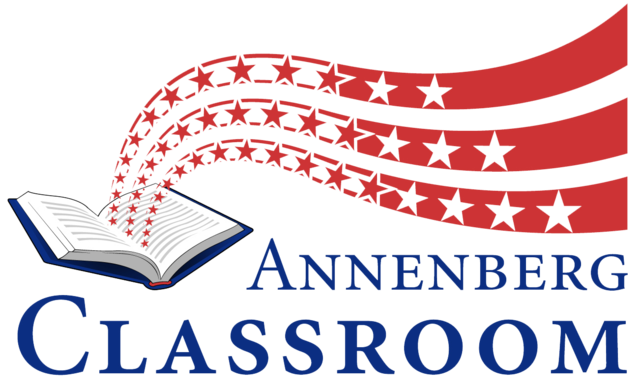
The Roadmap




Annenberg Classroom

This lesson asks students to consider the ethical and legal implications of the global refugee crisis and what those implications mean in terms of our human responsibilities.

The Roadmap




Facing History and Ourselves


As a new country, the United States made alliances with France and made agreements with indigenous nations. George Washington’s Farewell Address laid the foundation for the principles of American foreign policy, which urged leaders to avoid foreign entanglement; however, the United States found itself during the Early Republic engaged in foreign challenges. The 19th Century quickened the pace at which American policy added territory to the country. Indigenous nations, European powers and continental neighbors would all be part of the narrative as expansion influenced much of national policy. The United States proclaimed the Western Hemisphere off limits to European states in the Monroe Doctrine, although it would be decades before it could be effectively upheld.
The end of the 19th century and early 20th century established the fundamental tensions in US policy and how it plays a role in global affairs. The Spanish American War established the nation as a world power but ignited significant debate over that role. The annexation of places like the Philippines appeared incompatible to democratic ideals for many. Others saw adding territories like Hawaii as necessary for trade and military security. World War I led to serious proposals, led by the United States, guaranteeing future peace via collective security. However, Washington’s admonition about “foreign entanglements” proved more popular with the people and the United States embraced isolation and neutrality until World War II.
Over the last 70 years, the United States continues to be influenced by its economic self interest, its political ideals and its historical isolationist stance. Certainly, US foreign policy has been inconsistent as it struggles with the instructions offered by its first president and the demands of the global community.
The resources in this spotlight kit are intended for classroom use, and are shared here under a CC-BY-SA license. Teachers, please review the copyright and fair use guidelines.



The Roadmap





























- Primary Resources by Era/DateAmerican Revolution and the Early Republic 1778-1823 (4)Antebellum-World War I (1845-1919) (8)World War II Era (1938-1946) (6)Post-War Era (1951-Present) (5)
- All 23 Primary ResourcesTreaty with the Delaware (1778)Transcript
Articles of agreement and confederation, made and, entered; into by, Andrew and Thomas Lewis, Esquires, Commissioners for, and in Behalf of the United States of North-America of the one Part, and Capt. White Eyes, Capt. John Kill Buck, Junior, and Capt. Pipe, Deputies and Chief Men of the Delaware Nation of the other Part.
ARTICLE I.
That all offenses or acts of hostilities by one, or either of the contracting parties against the other, be mutually forgiven, and buried in the depth of oblivion, never more to be had in remembrance.ARTICLE II.
That a perpetual peace and friendship shall from henceforth take place, and subsist between the contracting: parties aforesaid, through all succeeding generations: and if either of the parties are engaged in a just and necessary war with any other nation or nations, that then each shall assist the other in due proportion to their abilities, till their enemies are brought to reasonable terms of accommodation: and that if either of them shall discover any hostile designs forming against the other, they shall give the earliest notice thereof that timeous measures may be taken to prevent their ill effect.This treaty established a tenuous peace between Americans and Native Americans. As explained in Smithsonian Magazine, “The Treaty with the Delaware Nation, signed at Fort Pitt in September 1778, represents a time when the newly independent United States needed American Indian allies to drive British troops from forts and outposts west of the Appalachian Mountains. Despite the treaty’s provisions, however, conflict continued in the Ohio Territory, leading the Delaware people to look for safer lands farther north and west.”
CitePrintShareRecordsofrights.org. 2022. Treaty with the Delaware, 1778 | Records of Rights. [online] Available at: http://recordsofrights.org/records/227/treaty-with-the-delaware
Magazine, S. (2018, May 21). A brief balance of power-the 1778 treaty with the Delaware Nation. Smithsonian.com. Retrieved May 28, 2022, from https://www.smithsonianmag.com/blogs/national-museum-american-indian/2018/05/22/1778-delaware-treaty/
Full text of the Treaty is available here.
George Washington's Farewell Address (1797)Washington, arguably the most respected foundational leader, was very clear about not getting involved in “foreign entanglements.” It’s important to contemplate his prescriptive advice and how close (or far) America has lived up to his vision.
George Washington’s Farewell Address (1797)“...Against the insidious wiles of foreign influence (I conjure you to believe me, fellow-citizens,) the jealousy of a free people ought to be constantly awake; since history and experience prove, that foreign influence is one of the most baneful foes of Republican Government. But that jealousy, to be useful, must be impartial; else it becomes the instrument of the very influence to be avoided, instead of a defense against it. Excessive partiality for one foreign nation, and excessive dislike of another, cause those whom they actuate to see danger only on one side, and serve to veil and even second the arts of influence on the other. Real patriots, who may resist the intrigues of the favorite, are liable to become suspected and odious; while its tools and dupes usurp the applause and confidence of the people, to surrender their interests.
The great rule of conduct for us, in regard to foreign nations, is, in extending our commercial relations, to have with them as little political connection as possible. So far as we have already formed engagements, let them be fulfilled with perfect good faith. Here let us stop.”
CitePrintShareWashington, George. George Washington Papers, Series 2, Letterbooks -1799: Letterbook 24, April 3, 1793 - March 3, 1797. 1793. Manuscript/Mixed Material. Retrieved from the Library of Congress, https://www.loc.gov/resource/mgw2.024/?sp=229
Full text here: “Washington's Farewell Address, 1796 · George Washington's Mount Vernon.” Mount Vernon, https://www.mountvernon.org/education/primary-source-collections/primary-source-collections/article/washington-s-farewell-address-1796/. Accessed 21 January 2023.
Request on Treaty of Tripoli (1797)Article 11 of this treaty established the United States as not being considered a “Christian Nation” by a foreign country. This would play an important part in diplomatic relations, especially with “non-Christian nations.” As one of our earlier treaties, this is also important because it sets the tone for foreign policy.
CitePrintShareSenate, Request on Treaty with Tripoli. -12-30, 1805. Manuscript/Mixed Material. Retrieved from the Library of Congress, www.loc.gov/item/mtjbib015461/.
President Monroe's Annual Message (1823)Transcript“...The citizens of the United States cherish sentiments the most friendly in favor of the liberty and happiness of their fellow-men on that side of the Atlantic. In the wars of the European powers in matters relating to themselves we have never taken any part, nor does it comport with our policy to do so. It is only when our rights are invaded or seriously menaced that we resent injuries or make preparation for our defense. With the movements in this hemisphere we are of necessity more immediately connected, and by causes which must be obvious to all enlightened and impartial observers. The political system of the allied powers is essentially different in this respect from that of America. This difference proceeds from that which exists in their respective Governments; and to the defense of our own, which has been achieved by the loss of so much blood and treasure, and matured by the wisdom of their most enlightened citizens, and under which we have enjoyed unexampled felicity, this whole nation is devoted. We owe it, therefore, to candor and to the amicable relations existing between the United States and those powers to declare that we should consider any attempt on their part to extend their system to any portion of this hemisphere as dangerous to our peace and safety.”
This item details “Monroe’s Doctrine” in President Monroe’s annual message to Congress. President Monroe buried a very serious global policy within the text of a routine speech. In it, he warned European powers to recognize the western hemisphere as America’s sphere of influence. His words are important to study how U.S. policy shifted in a drastic way.
CitePrintShareMemory.loc.gov. 2022. A Century of Lawmaking for a New Nation: U.S. Congressional Documents and Debates, 1774 - 1875. [online] Available at: <https://memory.loc.gov/cgi-bin/ampage?collId=llac&fileName=041/llac041.db&recNum=4> [Accessed 25 April 2022].
Full text here: “Monroe Doctrine (1823) | National Archives.” National Archives |, 10 May 2022, https://www.archives.gov/milestone-documents/monroe-doctrine. Accessed 21 January 2023.
The Patriots Get Their Beans- Political Cartoon (1845)This cartoon is a satirical look at presidential power. IN it there is “A satirical view of the scramble among newly elected President James K. Polk's 1844 campaign supporters, or "patriots," for "their beans," i.e., patronage and other official favors.”
CitePrintShareBaillie, James S., Active, and Edward Williams Clay. The Patriots Getting Their Beans. N.Y.: Lith. & pub. by James Baillie. Photograph. Retrieved from the Library of Congress, www.loc.gov/item/2008661455/.
The Treaty of Guadalupe Hidalgo (1848)As explained by the National Archives, “This treaty, signed on February 2, 1848, ended the war between the United States and Mexico. By its terms, Mexico ceded 55 percent of its territory, including the present-day states California, Nevada, Utah, New Mexico, most of Arizona and Colorado, and parts of Oklahoma, Kansas, and Wyoming. Mexico also relinquished all claims to Texas, and recognized the Rio Grande as the southern boundary with the United States.”
ARTICLE VIII Mexicans now established in territories previously belonging to Mexico, and which remain for the future within the limits of the United States, as defined by the present treaty, shall be free to continue where they now reside, or to remove at any time to the Mexican Republic…Those who shall prefer to remain in the said territories may either retain the title and rights of Mexican citizens or acquire those of citizens of the United States. But they shall be under the obligation to make their election within one year from the date of the exchange of ratifications of this treaty.…
ARTICLE IX The Mexicans who, in the territories aforesaid, shall not preserve the character of citizens of the Mexican Republic, conformably with what is stipulated in the preceding article, shall be incorporated into the Union of the United States. and be admitted at the proper time (to be judged of by the Congress of the United States) to the enjoyment of all the rights of citizens of the United States…
ARTICLE XII In consideration of the extension acquired by the boundaries of the United States, as defined in the fifth article of the present treaty, the Government of the United States engages to pay to that of the Mexican Republic the sum of fifteen million of dollars.
1Baillie, James S., Active, and Edward Williams Clay. The Patriots Getting Their Beans. N.Y.: Lith. & pub. by James Baillie. Photograph. Retrieved from the Library of Congress, <www.loc.gov/item/2008661455/>.CitePrintShare“Treaty of Guadalupe Hidalgo (1848) | National Archives.” National Archives |, 20 September 2022, https://www.archives.gov/milestone-documents/treaty-of-guadalupe-hidalgo. Accessed 21 January 2023.
Petition Against the Annexation of Hawaii (1897)Many people who were annexed by the United States tried to resist. This document shows how native Hawaiians did not want to be part of the United States.
CitePrintSharePetition Against the Annexation of Hawaii; 1897; Petitions and Memorials, Resolutions of State Legislatures, and Related Documents, which were referred to the Committee on Foreign Relations from the 55th Congress; Petitions and Memorials, 1817 - 2000; Records of the U.S. Senate, Record Group 46; National Archives Building, Washington, DC. [Online Version, https://www.docsteach.org/documents/document/petition-against-annexation-hawaii, April 25, 2022]
Chicago Liberty Meeting (1899)A session held by the Anti-imperialist league, this meeting consisted of people who spoke out against the U.S. annexation of the Philippines. It represents a domestic attitude about imperial ambitions.
CitePrintShareLoc.gov. 2022. Anti-imperialist league - The World of 1898: The Spanish-American War (Hispanic Division, Library of Congress). [online] Available at: <https://www.loc.gov/rr/hispanic/1898/league.html> [Accessed 25 April 2022]
Pacifists (1917)Simply titled, “Pacifists,” this photo shows how many Americans wanted a more democratic process to foreign involvement with the implicit understanding that Americans do not desire foreign involvement.
CitePrintShareHarris & Ewing, photographer. PACIFISTS. Photograph. Retrieved from the Library of Congress, www.loc.gov/item/2016867043/.
Woodrow Wilson's Fourteen Points (1918)Woodrow Wilson’s Fourteen points were statements of principles that outlined why the United States was entering the first World War. In other words, it was a clear statement of what Americans were fighting for. To many historians, this marked the end of isolationism.
CitePrintShareWilson, W., 2022. Woodrow Wilson's "Fourteen Points" | Peace and a New World Order? | World Overturned | Explore | Echoes of the Great War: American Experiences of World War I | Exhibitions at the Library of Congress | Library of Congress. [online] The Library of Congress. Available at: <https://www.loc.gov/exhibitions/world-war-i-american-experiences/about-this-exhibition/world-overturned/peace-and-a-new-world-order/woodrow-wilsons-fourteen-points/> [Accessed 25 April 2022].
Follow the Pied Piper (1918)This picture shows how kids were recruited to help make “victory gardens” and help win the war effort. It’s useful for demonstrating how Americans at home supported war goals.
CitePrintShareThe World War I Garden and Victory Garden. The World War I War Garden and Victory Garden - How Does Your Garden Grow Online Exhibit State Historical Society of North Dakota. (n.d.). Retrieved June 4, 2022, from https://www.history.nd.gov/exhibits/gardening/militaryevents8.html
Mary Church Terrell Papers (1919)This source shows a time when an American argued in favor of American intervention on behalf of Haiti, Liberia, and Abyssinia (Ethiopia).
CitePrintShareTerrell, Mary Church. Mary Church Terrell Papers: Subject File, -1962; Women's International League for Peace and Freedom, 1919 to 1921 , undated. - 1921, 1919. Manuscript/Mixed Material. Retrieved from the Library of Congress, www.loc.gov/item/mss425490340/. (Image 4)
Telegrams, Eleanor Roosevelt and President F.D. Roosevelt (1939)These images are telegrams sent from Eleanor Roosevelt, First Lady, to President Roosevelt, and his response. According to the U.S. Holocaust Memorial Museum, “in February 1939, the First Lady joined a list of prominent Americans who supported the passage of the Wagner-Rogers Bill, which proposed to ‘permit the entry of 20,000 German refugee children, ages 14 and under, into the United States’ over a two-year period and outside of the existing, restrictive immigration quota system. Though she was often outspoken on behalf of causes she cared about, this was the first time she publicly endorsed a piece of pending legislation as first lady. Eleanor Roosevelt told reporters that the bill was ‘a wise way to do a humanitarian act.’ The president never officially commented on the proposed legislation. The bill was never voted on.”
CitePrintShareEleanor Roosevelt | Americans and the Holocaust, https://exhibitions.ushmm.org/americans-and-the-holocaust/personal-story/eleanor-roosevelt.
President Franklin D. Roosevelt, A Date Which Will Live in Infamy" Address (1941)Although the United States had resisted officially entering the war, the surprise bombing of Pearl Harbor on December 7, 1941 led to the declaration of war on Japan and its allies. This speech, which Roosevelt delivered to Congress the following day, was also broadcast live on national radio.
President Franklin D. Roosevelt, A Date Which Will Live in Infamy" Address to the Congress Asking That a State of War Be Declared Between the United States and Japan. December 8, 1941:“Mr. Vice President, and Mr. Speaker, and Members of the Senate and House of Representatives:
YESTERDAY, December 7, 1941 a date which will live in infamy, the United States of America was suddenly and deliberately attacked by naval and air forces of the Empire of Japan.
The United States was at peace with that Nation and, at the solicitation of Japan, was still in conversation with its Government and its Emperor looking toward the maintenance of peace in the Pacific. Indeed, one hour after Japanese air squadrons had commenced bombing in the American Island of Oahu, the Japanese Ambassador to the United States and his colleague delivered to our Secretary of State a formal reply to a recent American message. And while this reply stated that it seemed useless to continue the existing diplomatic negotiations, it contained no threat or hint of war or of armed attack.
It will be recorded that the distance of Hawaii from Japan makes it obvious that the attack was deliberately planned many days or even weeks ago. During the intervening time the Japanese Government has deliberately sought to deceive the United States by false statements and expressions of hope for continued peace.
The attack yesterday on the Hawaiian Islands has caused severe damage to American naval and military forces. I regret to tell you that very many American lives have been lost. In addition American ships have been reported torpedoed on the high seas between San Francisco and Honolulu.
…The people of the United States have already formed their opinions and well understand the implications to the very life and safety of our Nation.
As Commander in Chief of the Army and Navy I have directed that all measures be taken for our defense. But always will our whole Nation remember the character of the onslaught against us. No matter how long it may take us to overcome this premeditated invasion, the American people in their righteous might will win through to absolute victory.
I believe that I interpret the will of the Congress and of the people when I assert that we will not only defend ourselves to the uttermost but will make it very certain that this form of treachery shall never again endanger us….
I ask that the Congress declare that since the unprovoked and dastardly attack by Japan on Sunday, December 7, 1941, a state of war has existed between the United States and the Japanese Empire.”
CitePrintShareRoosevelt, Franklin D. “Speech by Franklin D. Roosevelt, New York (Transcript).” Library of Congress, https://www.loc.gov/resource/afc1986022.afc1986022_ms2201/?st=text.
Presidential Proclamation 2525: Enemy Aliens (1941)This Presidential Proclamation, which followed the Japanese attack on Pearl Harbor, set the stage for the incarceration of Japanese Americans. Under this proclamation, even Japanese-American citizens were treated as “enemy aliens,” deprived of their Constitutional rights, and removed from their homes into internment camps for the duration of the war.
CitePrintShare“Internment Archives.” Internment Archives, https://www.internmentarchives.com/specialreports/smithsonian/smithsonian10.php.
Recruitment Posters (1942)Uncle Sam Recruitment Poster (1942)“We Can Do It!” Rosie the Riveter (1942)These two iconic images are most closely associated with their use during World War II, though the “Uncle Sam” character was first created during World War I. The Department of Defense refers to these images, intended to recruit soldiers to fight and women to work in the factories to support the war effort, as the “social media of the time.” The “We Can Do It” poster introduced the character of Rosie the Riveter, intended to attract more women to fill jobs left vacant by men leaving for the armed forces.
CitePrintShareVergun, David. “WWII Posters Aimed to Inspire, Encourage Service,” U.S. Department of Defense, 16 October 2019, https://www.defense.gov/News/Feature-Stories/story/Article/1990131/wwii-posters-aimed-to-inspire-encourage-service/.
Yalta Conference, New York Times (1945)On February 11, 1945, President Roosevelt, British Prime Minister Winston Churchill and Soviet leader Josef Stalin signed the Yalta Agreement. The three world leaders negotiated plans for the governance of Europe following the end of World War II.
Potsdam Declaration (1945)The terms of the Potsdam Declaration include “that Japan …be given an opportunity to end this war,” but within two weeks, the United States deployed atomic bombs on the Japanese cities of Hiroshima and Nagasaki. The use of these two nuclear weapons was the only such use in history. The final statement of the Proclamation, included in this excerpt, hints at that threat. While Japan did surrender after the use of the atomic bombs, some historians question whether the deployment of the weapons was necessary for surrender or whether the surrender could have been secured without it.
Proclamation Defining Terms for Japanese Surrender Issued, at Potsdam, July 26, 1945- We―the President of the United States, the President of the National Government of the Republic of China, and the Prime Minister of Great Britain, representing the hundreds of millions of our countrymen, have conferred and agree that Japan shall be given an opportunity to end this war.
- The prodigious land, sea and air forces of the United States, the British Empire and of China, many times reinforced by their armies and air fleets from the west, are poised to strike the final blows upon Japan. This military power is sustained and inspired by the determination of all the Allied Nations to prosecute the war against Japan until she ceases to resist.
- The occupying forces of the Allies shall be withdrawn from Japan as soon as these objectives have been accomplished and there has been established in accordance with the freely expressed will of the Japanese people a peacefully inclined and responsible government.
- We call upon the government of Japan to proclaim now the unconditional surrender of all Japanese armed forces, and to provide proper and adequate assurances of their good faith in such action. The alternative for Japan is prompt and utter destruction.
CitePrintShare“Potsdam Declaration - Nuclear Museum.” Atomic Heritage Foundation, https://ahf.nuclearmuseum.org/ahf/key-documents/potsdam-declaration/.
The Causes of World War (1951)In this draft of a speech WEB DuBois was critiquing war as a means to perpetuate supremacy. He argued against involvement.
CitePrintShareDuBois, W., 2022. The causes of world war, September 28, 1951. [online] Credo.library.umass.edu. Available at: https://credo.library.umass.edu/view/full/mums312-b201-i071 [Accessed 25 April 2022].
U.S.S.R. Moscow, Mr. K[hrushchev] & V.P. Nixon on T.V. at American exhibit (1959)U.S.S.R. Moscow, Mr. K[hrushchev] & V.P. Nixon on T.V. at American exhibit (1959)This source shows the impact television made on foreign policy. Nixon and Kruschev debated about the merits of their respective economic types.
CitePrintShareLoc.gov. 2022. U.S.S.R. Moscow, Mr. K[hrushchev] & V.P. Nixon on T.V. at American exhibit. [online] Available at: https://www.loc.gov/pictures/resource/ppmsca.19730/ [Accessed 25 April 2022].
Tick-Tock-Tock Political Cartoon (1962)This satirical cartoon shows the seemingly inevitable nature of nuclear war, after getting entangled with The Soviet Union. It can be used to show how close the United States came to nuclear war and the results of brinkmanship policy.
CitePrintShareBlock, H., 2022. "Tick-tock-tick". [online] Loc.gov. Available at: <https://www.loc.gov/pictures/item/2011661783/> [Accessed 25 April 2022].
Anti-Vietnam War Protest (1968)A massive movement against the war in Vietnam, protestors took to the streets to voice their outrage in U.S. policy, arguing for less intervention in global affairs.
CitePrintShareLoc.gov. 2022. [Anti-Vietnam war protest and demonstration in front of the White House in support of singer Eartha Kitt]. [online] Available at: https://www.loc.gov/pictures/item/2010646065/ [Accessed 25 April 2022].
Camp David Summit (1978)This meeting between the U.S. president and leaders from Egypt and Israel successfully produced the basis for an Egyptian-Israeli peace, in the form of two “Framework” documents, which laid out the principles of a bilateral peace agreement as well as a formula for Palestinian self-government in Gaza and the West Bank.
1U.S. Department of State. (n.d.). U.S. Department of State. Retrieved June 2, 2022, from https://history.state.gov/milestones/1977-1980/camp-david#:~:text=In%20the%20end%2C%20while%20the,Gaza%20and%20the%20West%20Bank.
CitePrintShareU.S. Department of State. (n.d.). U.S. Department of State. Retrieved June 2, 2022, from https://history.state.gov/milestones/1977-1980/camp-david#:~:text=In%20the%20end%2C%20while%20the,Gaza%20and%20the%20West%20Bank.
Education for American Democracy


Through the use of primary and secondary sources, students will understand the impact that World War I had on Arkansas.
The Roadmap


Arkansas Digital Archives
This free curriculum guide from the New-York Historical Society explores World War II through the lens of New York City, examining what it meant to live on the home front and the impact of wartime on peoples' lives.
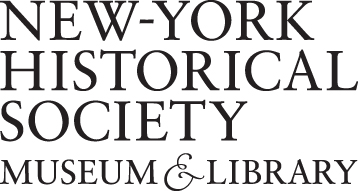
The Roadmap


New-York Historical Society


Download the Roadmap and Report
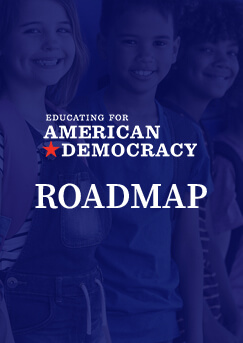
Download the Educating for American Democracy Roadmap and Report Documents
Get the Roadmap and Report to unlock the work of over 300 leading scholars, educators, practitioners, and others who spent thousands of hours preparing this robust framework and guiding principles. The time is now to prioritize history and civics.
Your contact information will not be shared, and only used to send additional updates and materials from Educating for American Democracy, from which you can unsubscribe.
We the People
This theme explores the idea of “the people” as a political concept–not just a group of people who share a landscape but a group of people who share political ideals and institutions.
Institutional & Social Transformation
This theme explores how social arrangements and conflicts have combined with political institutions to shape American life from the earliest colonial period to the present, investigates which moments of change have most defined the country, and builds understanding of how American political institutions and society changes.
Contemporary Debates & Possibilities
This theme explores the contemporary terrain of civic participation and civic agency, investigating how historical narratives shape current political arguments, how values and information shape policy arguments, and how the American people continues to renew or remake itself in pursuit of fulfillment of the promise of constitutional democracy.
Civic Participation
This theme explores the relationship between self-government and civic participation, drawing on the discipline of history to explore how citizens’ active engagement has mattered for American society and on the discipline of civics to explore the principles, values, habits, and skills that support productive engagement in a healthy, resilient constitutional democracy. This theme focuses attention on the overarching goal of engaging young people as civic participants and preparing them to assume that role successfully.
Our Changing landscapes
This theme begins from the recognition that American civic experience is tied to a particular place, and explores the history of how the United States has come to develop the physical and geographical shape it has, the complex experiences of harm and benefit which that history has delivered to different portions of the American population, and the civics questions of how political communities form in the first place, become connected to specific places, and develop membership rules. The theme also takes up the question of our contemporary responsibility to the natural world.
A New Government & Constitution
This theme explores the institutional history of the United States as well as the theoretical underpinnings of constitutional design.
A People in the World
This theme explores the place of the U.S. and the American people in a global context, investigating key historical events in international affairs,and building understanding of the principles, values, and laws at stake in debates about America’s role in the world.
The Seven Themes
The Seven Themes provide the organizational framework for the Roadmap. They map out the knowledge, skills, and dispositions that students should be able to explore in order to be engaged in informed, authentic, and healthy civic participation. Importantly, they are neither standards nor curriculum, but rather a starting point for the design of standards, curricula, resources, and lessons.
Driving questions provide a glimpse into the types of inquiries that teachers can write and develop in support of in-depth civic learning. Think of them as a starting point in your curricular design.
Learn more about inquiry-based learning in the Pedagogy Companion.
Sample guiding questions are designed to foster classroom discussion, and can be starting points for one or multiple lessons. It is important to note that the sample guiding questions provided in the Roadmap are NOT an exhaustive list of questions. There are many other great topics and questions that can be explored.
Learn more about inquiry-based learning in the Pedagogy Companion.
The Seven Themes
The Seven Themes provide the organizational framework for the Roadmap. They map out the knowledge, skills, and dispositions that students should be able to explore in order to be engaged in informed, authentic, and healthy civic participation. Importantly, they are neither standards nor curriculum, but rather a starting point for the design of standards, curricula, resources, and lessons.
The Five Design Challenges
America’s constitutional politics are rife with tensions and complexities. Our Design Challenges, which are arranged alongside our Themes, identify and clarify the most significant tensions that writers of standards, curricula, texts, lessons, and assessments will grapple with. In proactively recognizing and acknowledging these challenges, educators will help students better understand the complicated issues that arise in American history and civics.
Motivating Agency, Sustaining the Republic
- How can we help students understand the full context for their roles as civic participants without creating paralysis or a sense of the insignificance of their own agency in relation to the magnitude of our society, the globe, and shared challenges?
- How can we help students become engaged citizens who also sustain civil disagreement, civic friendship, and thus American constitutional democracy?
- How can we help students pursue civic action that is authentic, responsible, and informed?
America’s Plural Yet Shared Story
- How can we integrate the perspectives of Americans from all different backgrounds when narrating a history of the U.S. and explicating the content of the philosophical foundations of American constitutional democracy?
- How can we do so consistently across all historical periods and conceptual content?
- How can this more plural and more complete story of our history and foundations also be a common story, the shared inheritance of all Americans?
Simultaneously Celebrating & Critiquing Compromise
- How do we simultaneously teach the value and the danger of compromise for a free, diverse, and self-governing people?
- How do we help students make sense of the paradox that Americans continuously disagree about the ideal shape of self-government but also agree to preserve shared institutions?
Civic Honesty, Reflective Patriotism
- How can we offer an account of U.S. constitutional democracy that is simultaneously honest about the wrongs of the past without falling into cynicism, and appreciative of the founding of the United States without tipping into adulation?
Balancing the Concrete & the Abstract
- How can we support instructors in helping students move between concrete, narrative, and chronological learning and thematic and abstract or conceptual learning?
Each theme is supported by key concepts that map out the knowledge, skills, and dispositions students should be able to explore in order to be engaged in informed, authentic, and healthy civic participation. They are vertically spiraled and developed to apply to K—5 and 6—12. Importantly, they are not standards, but rather offer a vision for the integration of history and civics throughout grades K—12.
Helping Students Participate
- How can I learn to understand my role as a citizen even if I’m not old enough to take part in government? How can I get excited to solve challenges that seem too big to fix?
- How can I learn how to work together with people whose opinions are different from my own?
- How can I be inspired to want to take civic actions on my own?
America’s Shared Story
- How can I learn about the role of my culture and other cultures in American history?
- How can I see that America’s story is shared by all?
Thinking About Compromise
- How can teachers teach the good and bad sides of compromise?
- How can I make sense of Americans who believe in one government but disagree about what it should do?
Honest Patriotism
- How can I learn an honest story about America that admits failure and celebrates praise?
Balancing Time & Theme
- How can teachers help me connect historical events over time and themes?
The Six Pedagogical Principles
EAD teacher draws on six pedagogical principles that are connected sequentially.
Six Core Pedagogical Principles are part of our Pedagogy Companion. The Pedagogical Principles are designed to focus educators’ effort on techniques that best support the learning and development of student agency required of history and civic education.
EAD teachers commit to learn about and teach full and multifaceted historical and civic narratives. They appreciate student diversity and assume all students’ capacity for learning complex and rigorous content. EAD teachers focus on inclusion and equity in both content and approach as they spiral instruction across grade bands, increasing complexity and depth about relevant history and contemporary issues.
Growth Mindset and Capacity Building
EAD teachers have a growth mindset for themselves and their students, meaning that they engage in continuous self-reflection and cultivate self-knowledge. They learn and adopt content as well as practices that help all learners of diverse backgrounds reach excellence. EAD teachers need continuous and rigorous professional development (PD) and access to professional learning communities (PLCs) that offer peer support and mentoring opportunities, especially about content, pedagogical approaches, and instruction-embedded assessments.
Building an EAD-Ready Classroom and School
EAD teachers cultivate and sustain a learning environment by partnering with administrators, students, and families to conduct deep inquiry about the multifaceted stories of American constitutional democracy. They set expectations that all students know they belong and contribute to the classroom community. Students establish ownership and responsibility for their learning through mutual respect and an inclusive culture that enables students to engage courageously in rigorous discussion.
Inquiry as the Primary Mode for Learning
EAD teachers not only use the EAD Roadmap inquiry prompts as entry points to teaching full and complex content, but also cultivate students’ capacity to develop their own deep and critical inquiries about American history, civic life, and their identities and communities. They embrace these rigorous inquiries as a way to advance students’ historical and civic knowledge, and to connect that knowledge to themselves and their communities. They also help students cultivate empathy across differences and inquisitiveness to ask difficult questions, which are core to historical understanding and constructive civic participation.
Practice of Constitutional Democracy and Student Agency
EAD teachers use their content knowledge and classroom leadership to model our constitutional principle of “We the People” through democratic practices and promoting civic responsibilities, civil rights, and civic friendship in their classrooms. EAD teachers deepen students’ grasp of content and concepts by creating student opportunities to engage with real-world events and problem-solving about issues in their communities by taking informed action to create a more perfect union.
Assess, Reflect, and Improve
EAD teachers use assessments as a tool to ensure all students understand civics content and concepts and apply civics skills and agency. Students have the opportunity to reflect on their learning and give feedback to their teachers in higher-order thinking exercises that enhance as well as measure learning. EAD teachers analyze and utilize feedback and assessment for self-reflection and improving instruction.
EAD teachers commit to learn about and teach full and multifaceted historical and civic narratives. They appreciate student diversity and assume all students’ capacity for learning complex and rigorous content. EAD teachers focus on inclusion and equity in both content and approach as they spiral instruction across grade bands, increasing complexity and depth about relevant history and contemporary issues.
Growth Mindset and Capacity Building
EAD teachers have a growth mindset for themselves and their students, meaning that they engage in continuous self-reflection and cultivate self-knowledge. They learn and adopt content as well as practices that help all learners of diverse backgrounds reach excellence. EAD teachers need continuous and rigorous professional development (PD) and access to professional learning communities (PLCs) that offer peer support and mentoring opportunities, especially about content, pedagogical approaches, and instruction-embedded assessments.
Building an EAD-Ready Classroom and School
EAD teachers cultivate and sustain a learning environment by partnering with administrators, students, and families to conduct deep inquiry about the multifaceted stories of American constitutional democracy. They set expectations that all students know they belong and contribute to the classroom community. Students establish ownership and responsibility for their learning through mutual respect and an inclusive culture that enables students to engage courageously in rigorous discussion.
Inquiry as the Primary Mode for Learning
EAD teachers not only use the EAD Roadmap inquiry prompts as entry points to teaching full and complex content, but also cultivate students’ capacity to develop their own deep and critical inquiries about American history, civic life, and their identities and communities. They embrace these rigorous inquiries as a way to advance students’ historical and civic knowledge, and to connect that knowledge to themselves and their communities. They also help students cultivate empathy across differences and inquisitiveness to ask difficult questions, which are core to historical understanding and constructive civic participation.
Practice of Constitutional Democracy and Student Agency
EAD teachers use their content knowledge and classroom leadership to model our constitutional principle of “We the People” through democratic practices and promoting civic responsibilities, civil rights, and civic friendship in their classrooms. EAD teachers deepen students’ grasp of content and concepts by creating student opportunities to engage with real-world events and problem-solving about issues in their communities by taking informed action to create a more perfect union.
Assess, Reflect, and Improve
EAD teachers use assessments as a tool to ensure all students understand civics content and concepts and apply civics skills and agency. Students have the opportunity to reflect on their learning and give feedback to their teachers in higher-order thinking exercises that enhance as well as measure learning. EAD teachers analyze and utilize feedback and assessment for self-reflection and improving instruction.


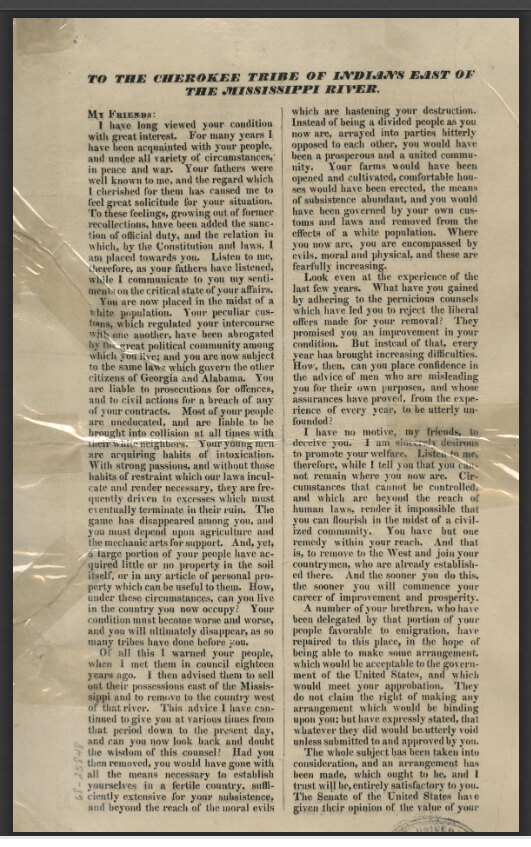
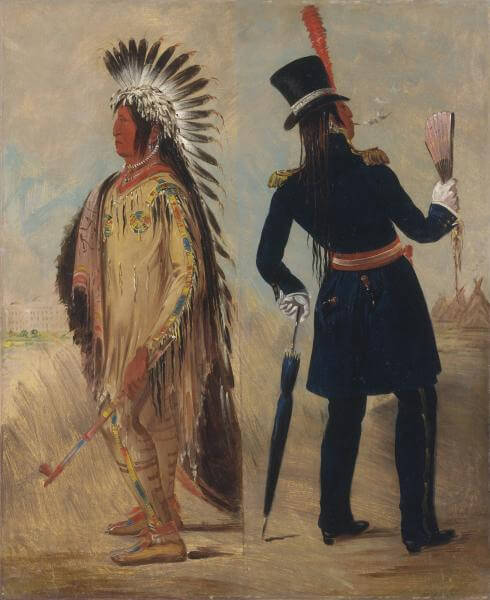
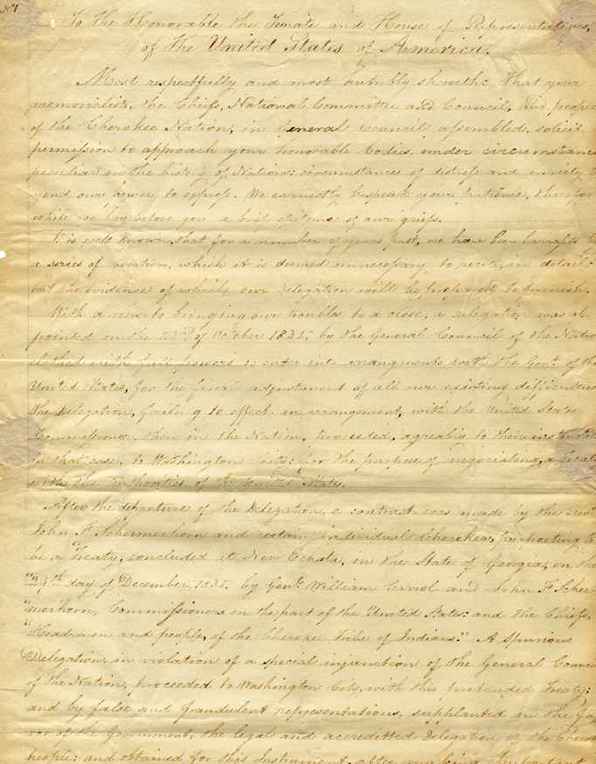
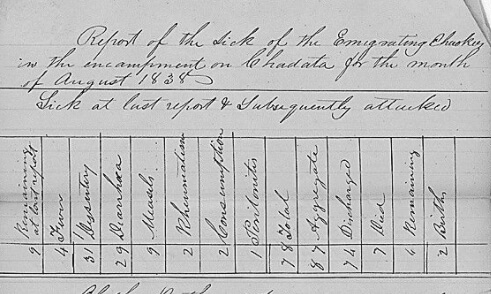
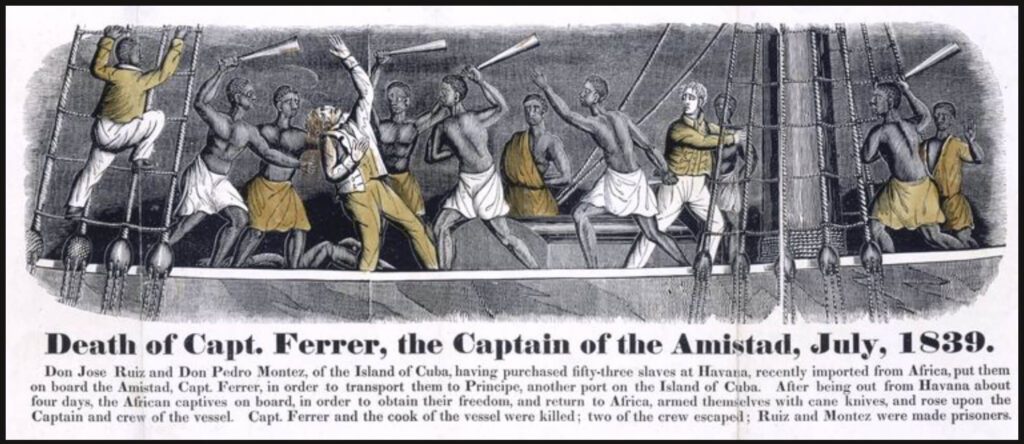
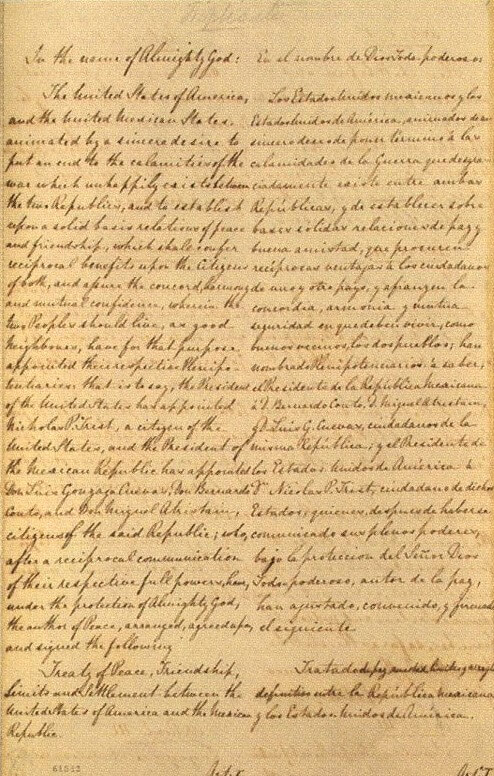
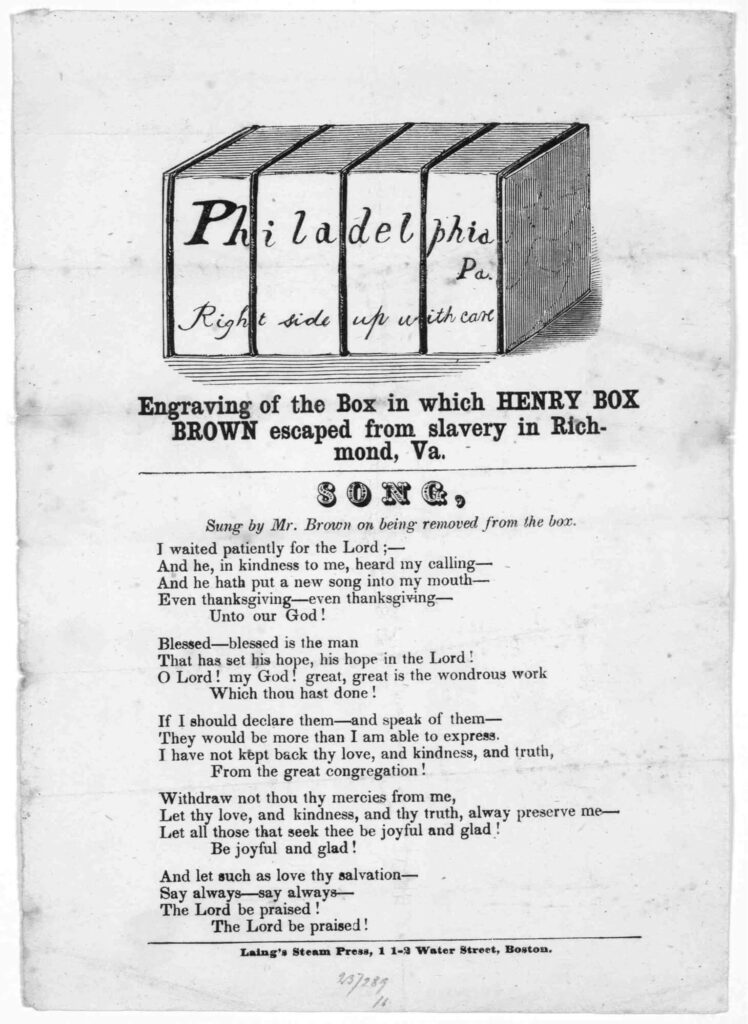
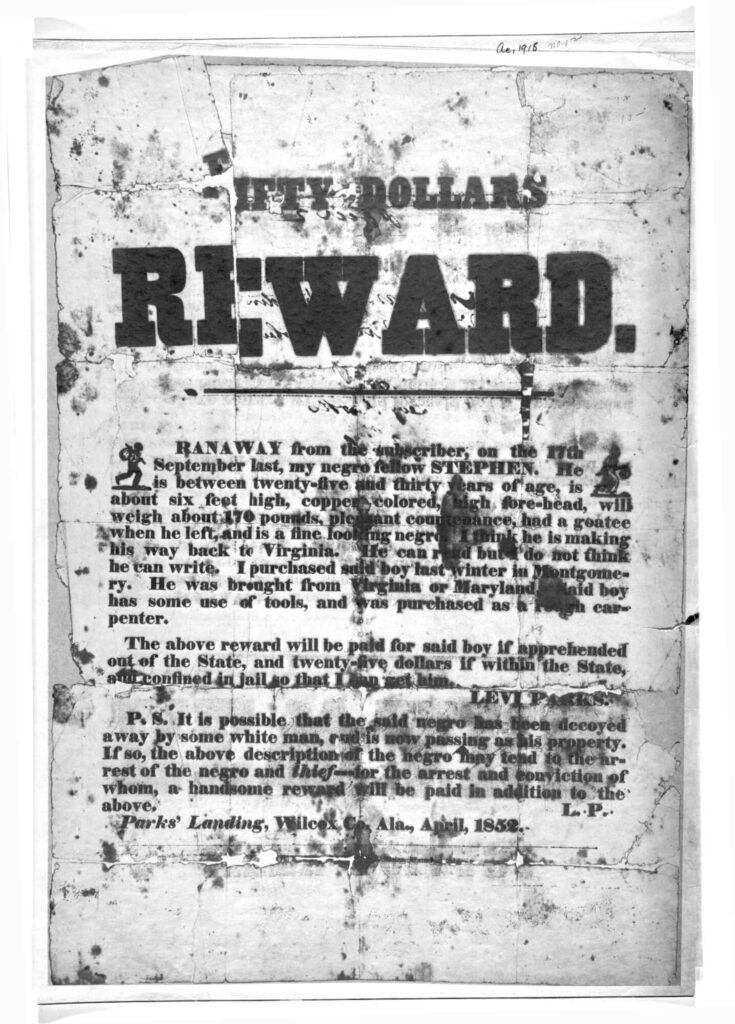
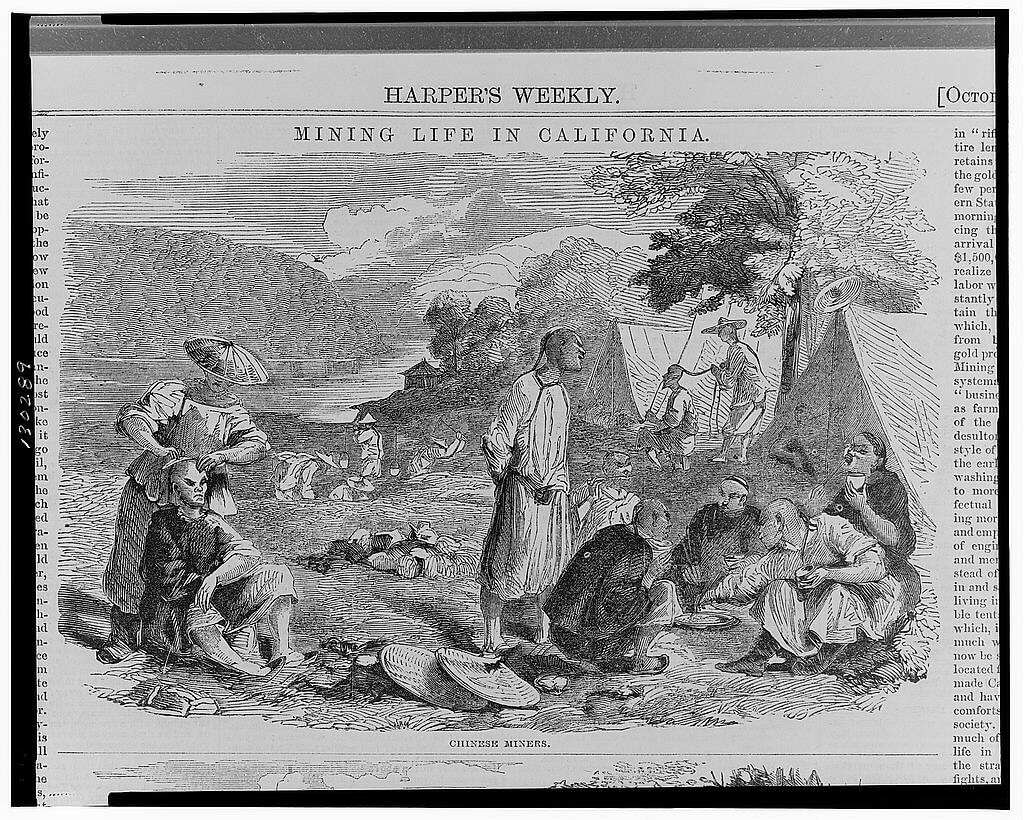
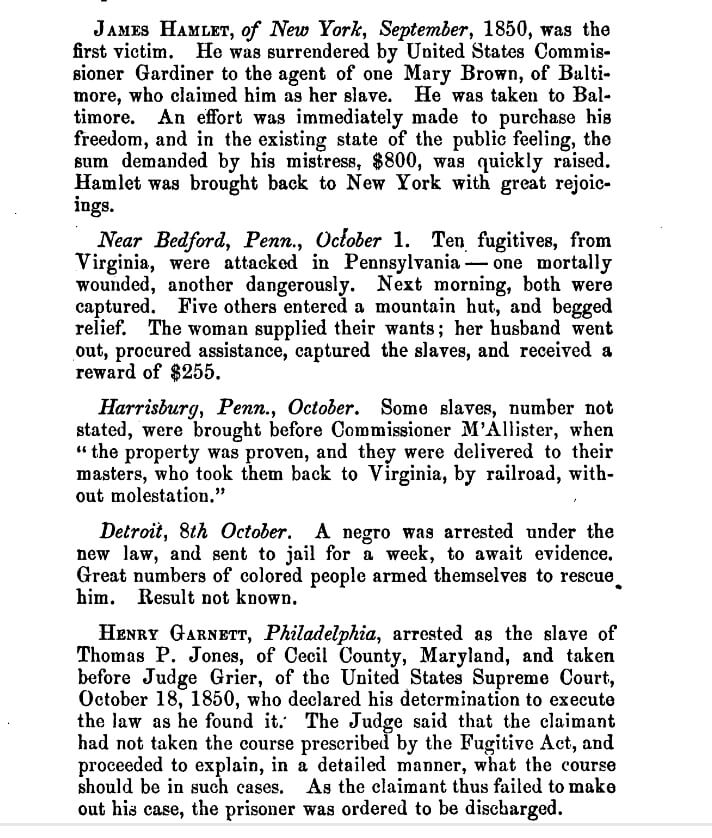
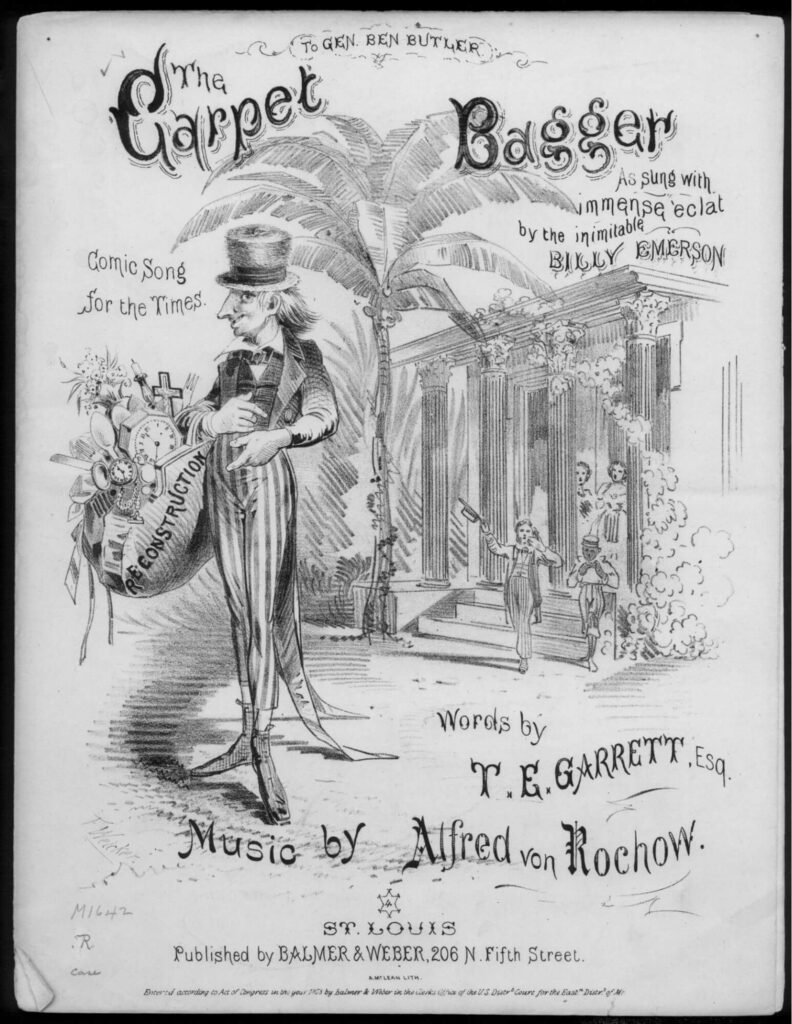
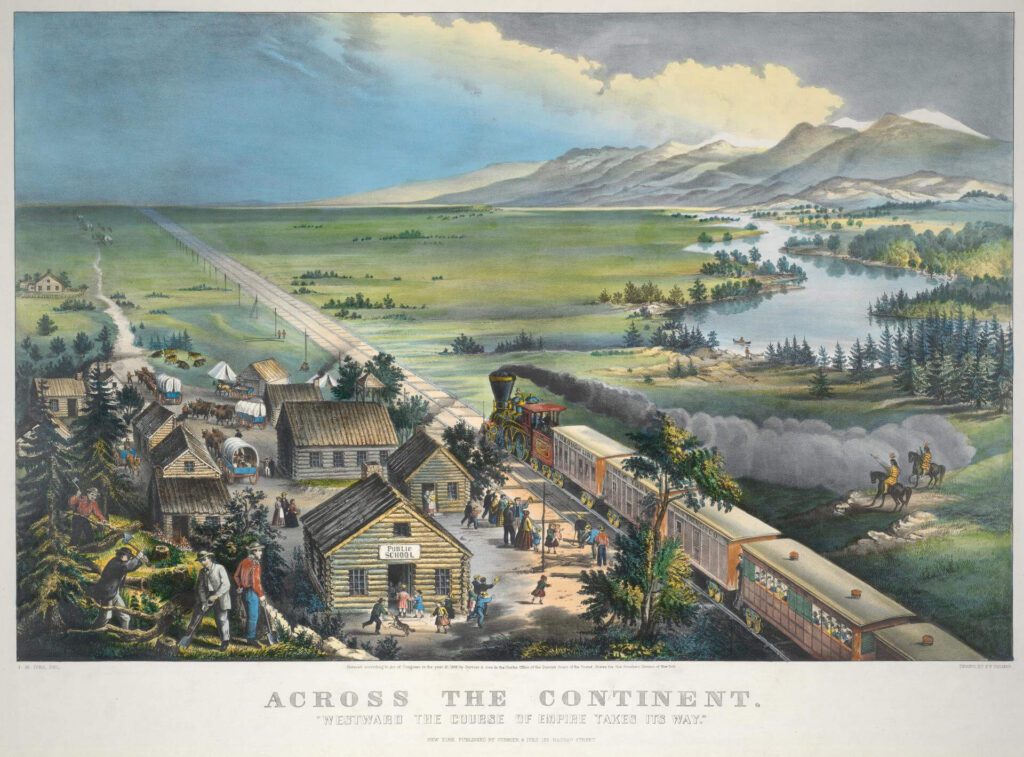
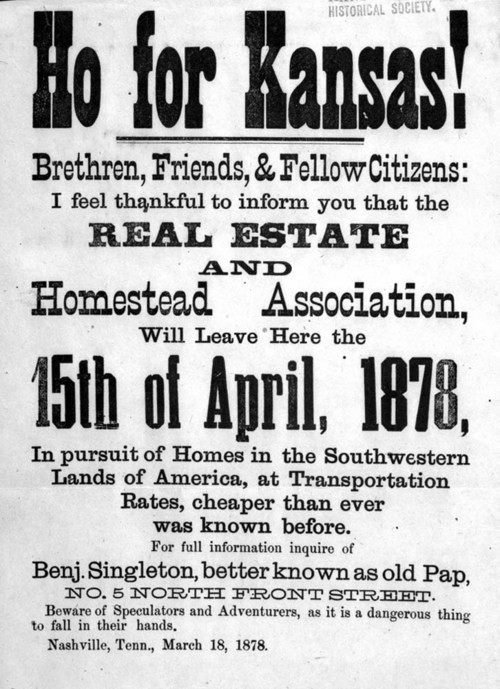
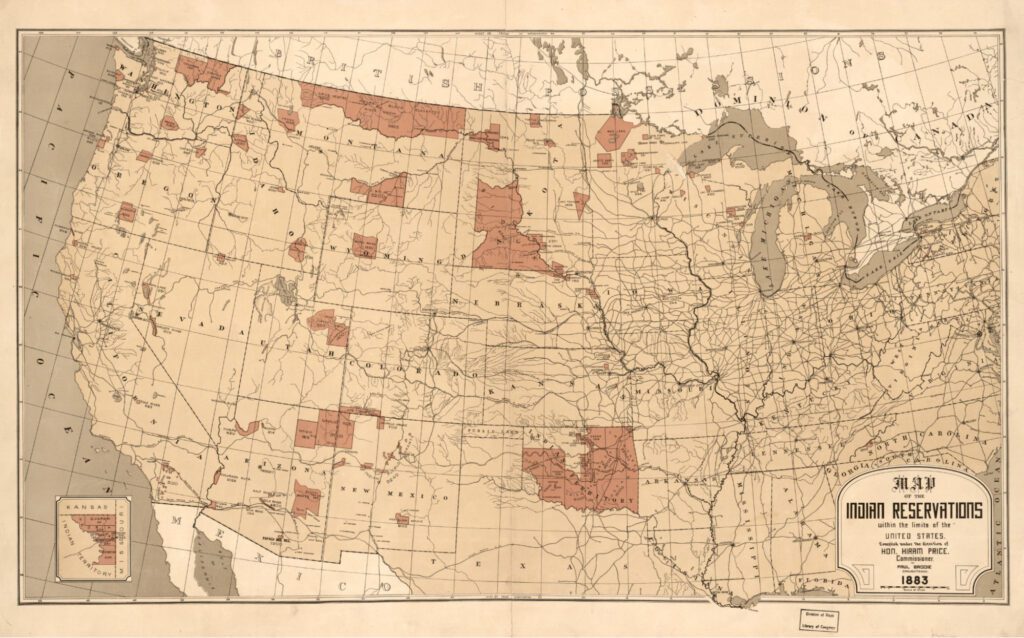
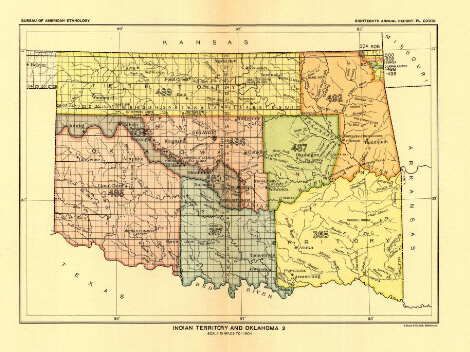
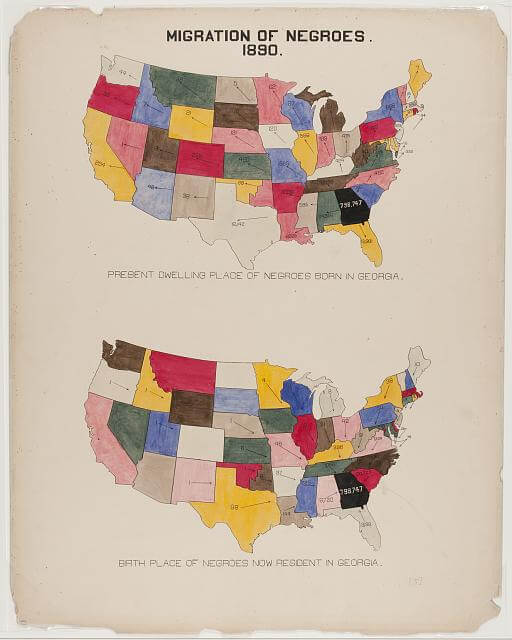
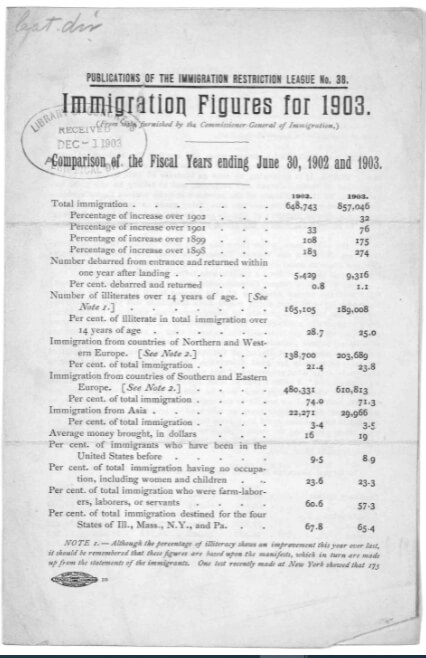
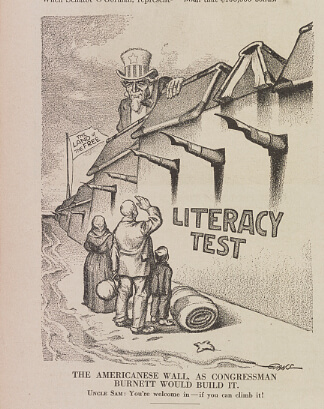
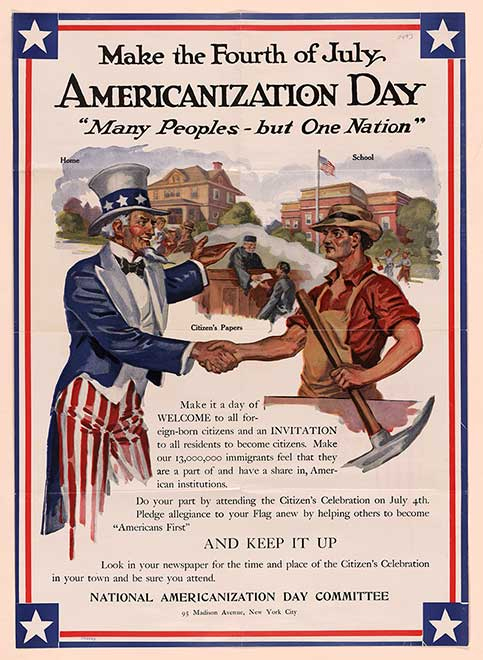
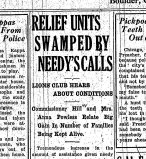
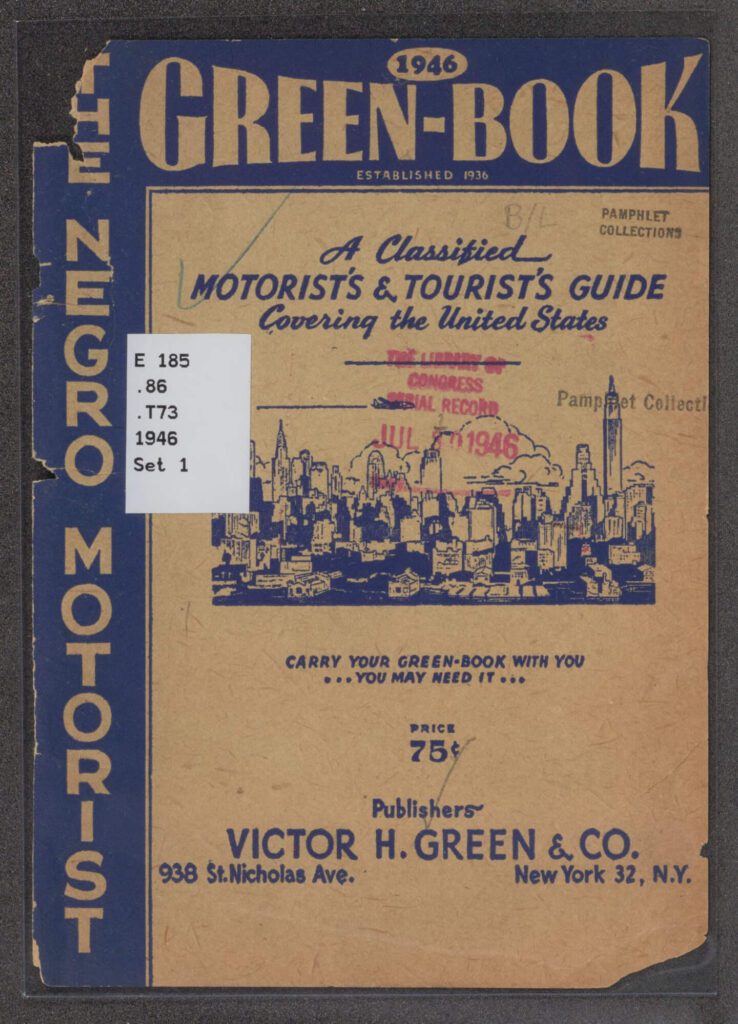
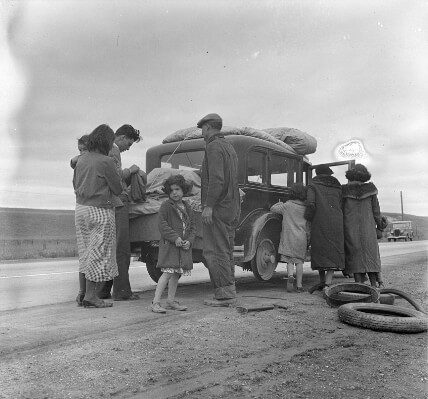
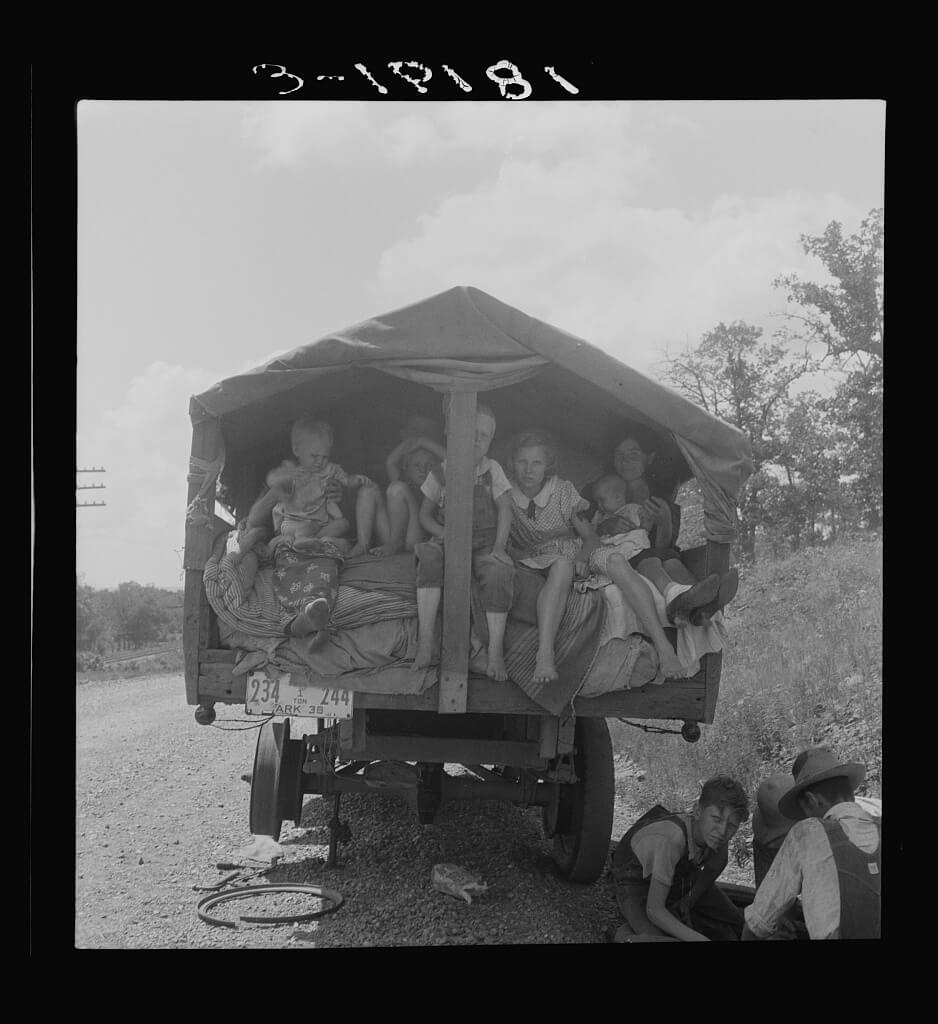
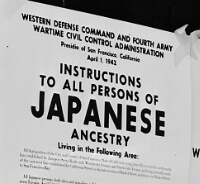
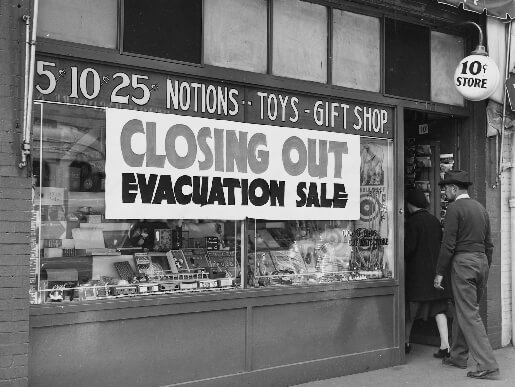
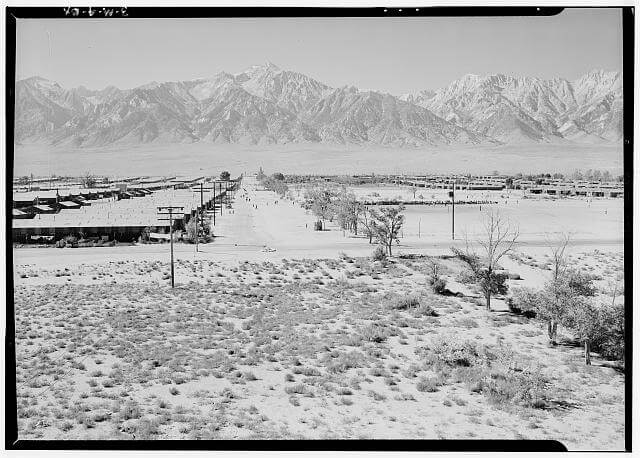
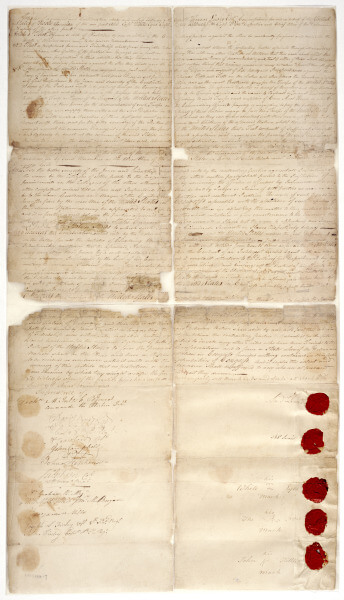
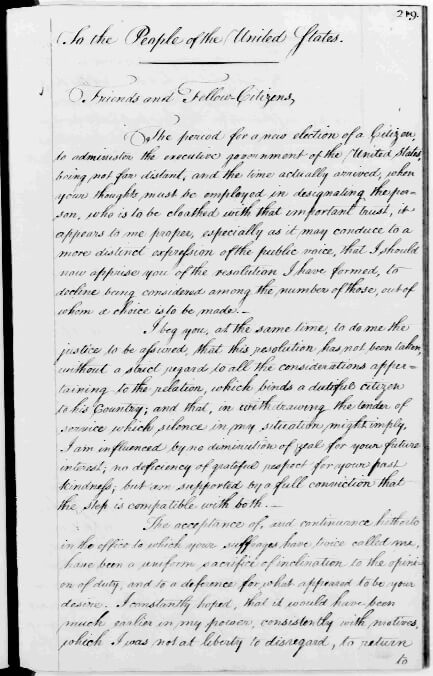
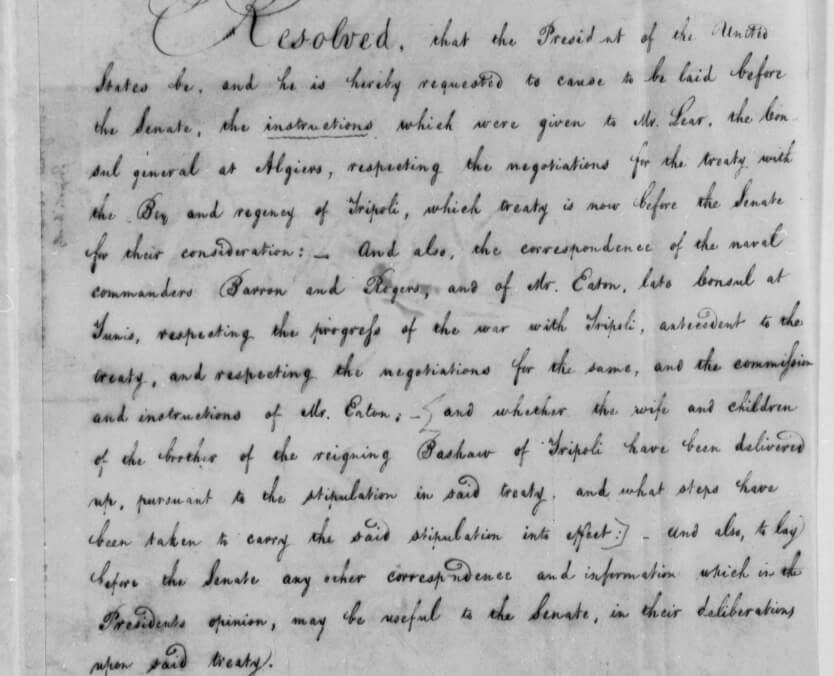
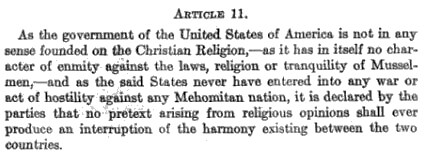
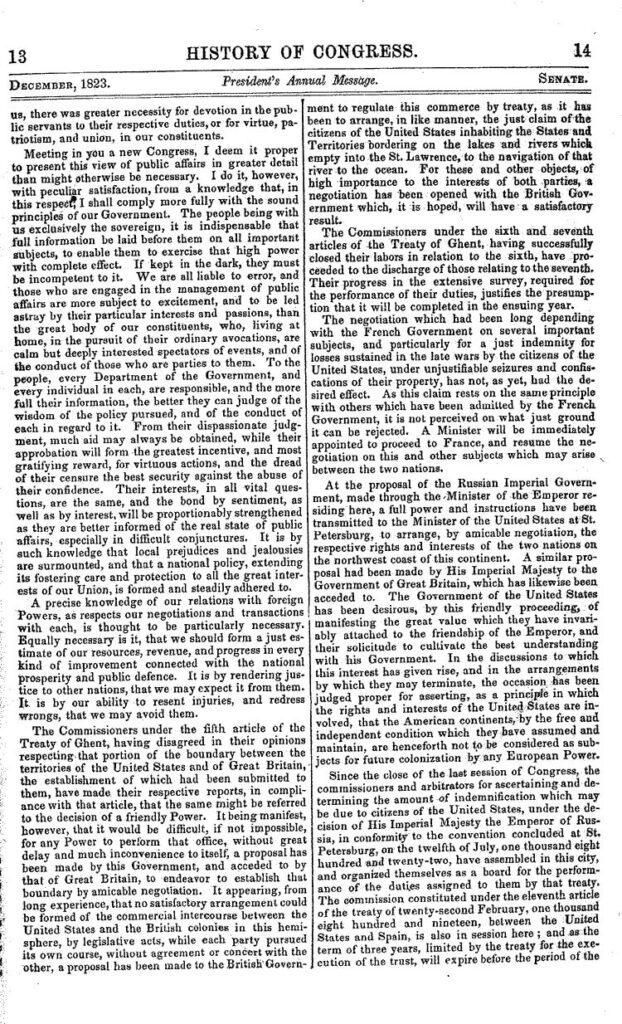
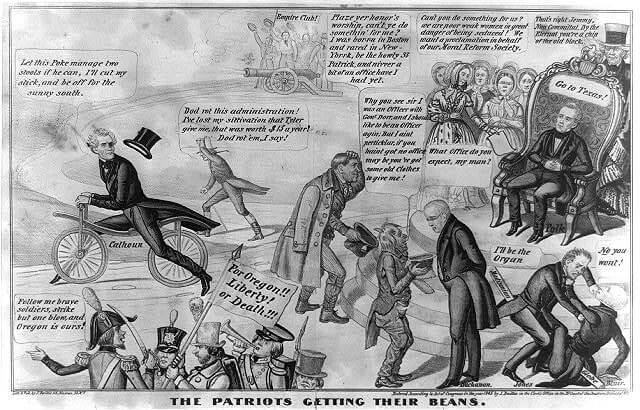
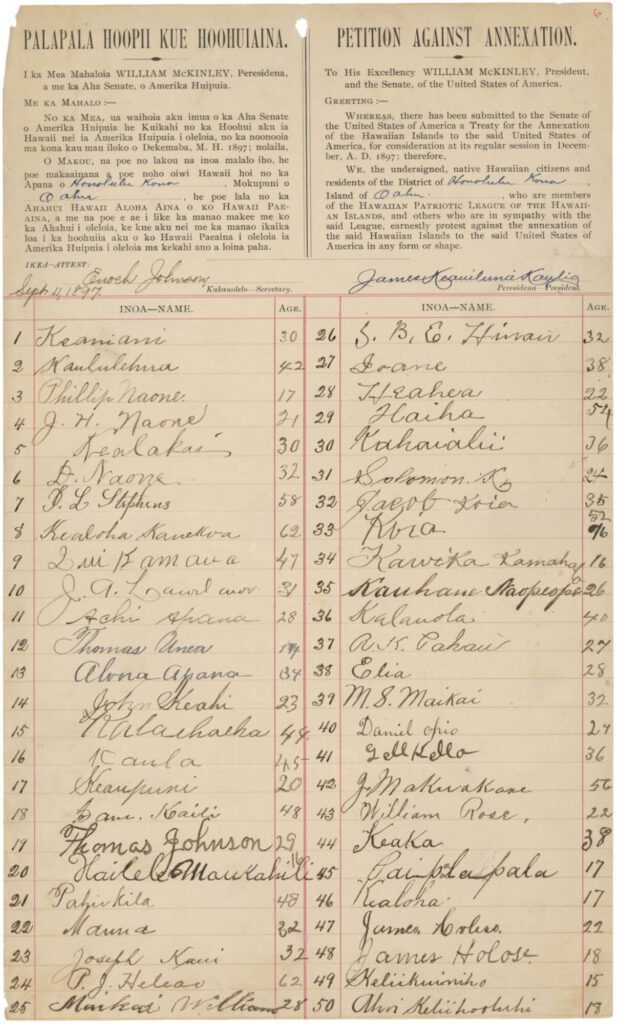
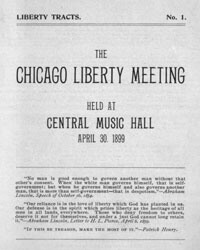
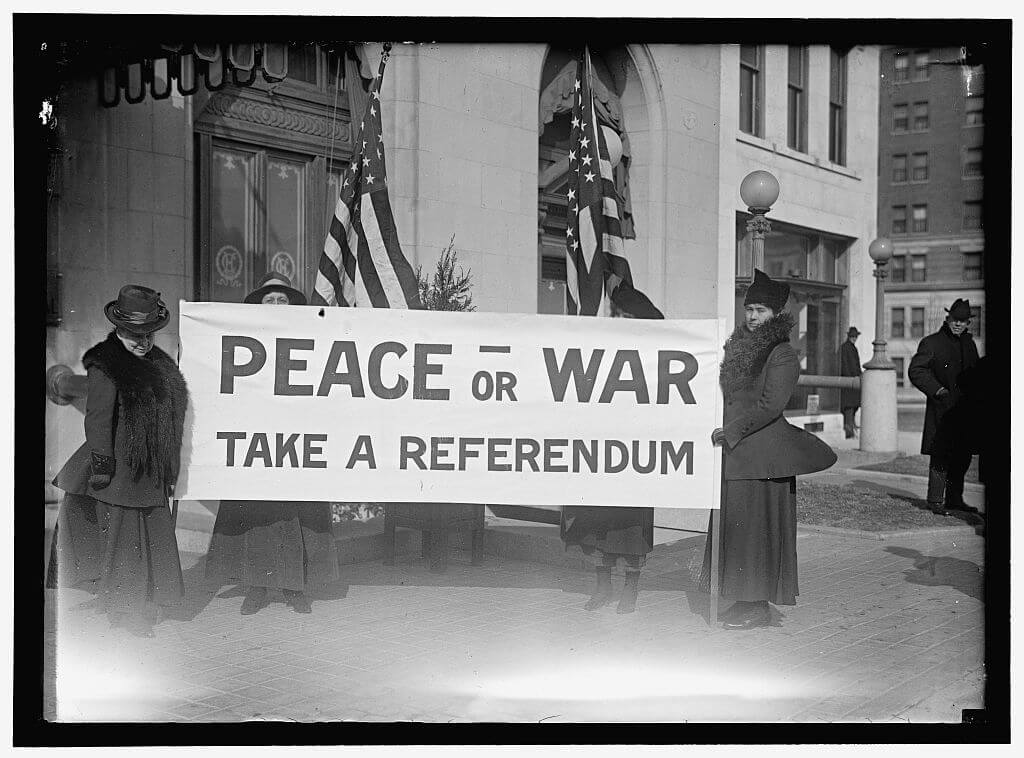
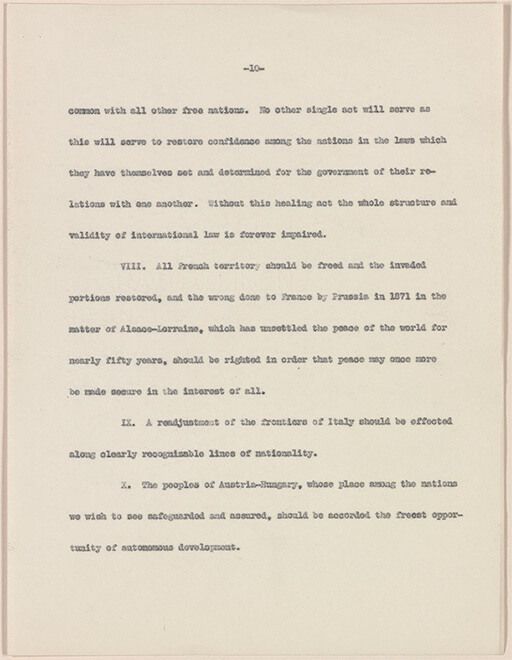
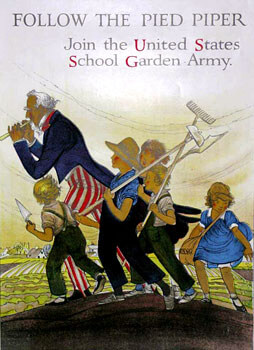
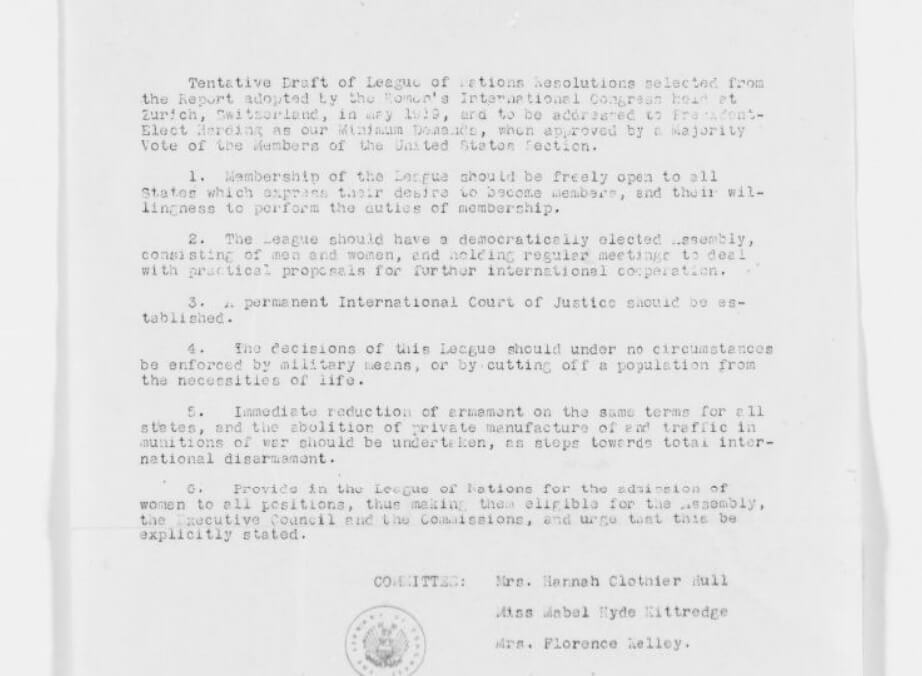
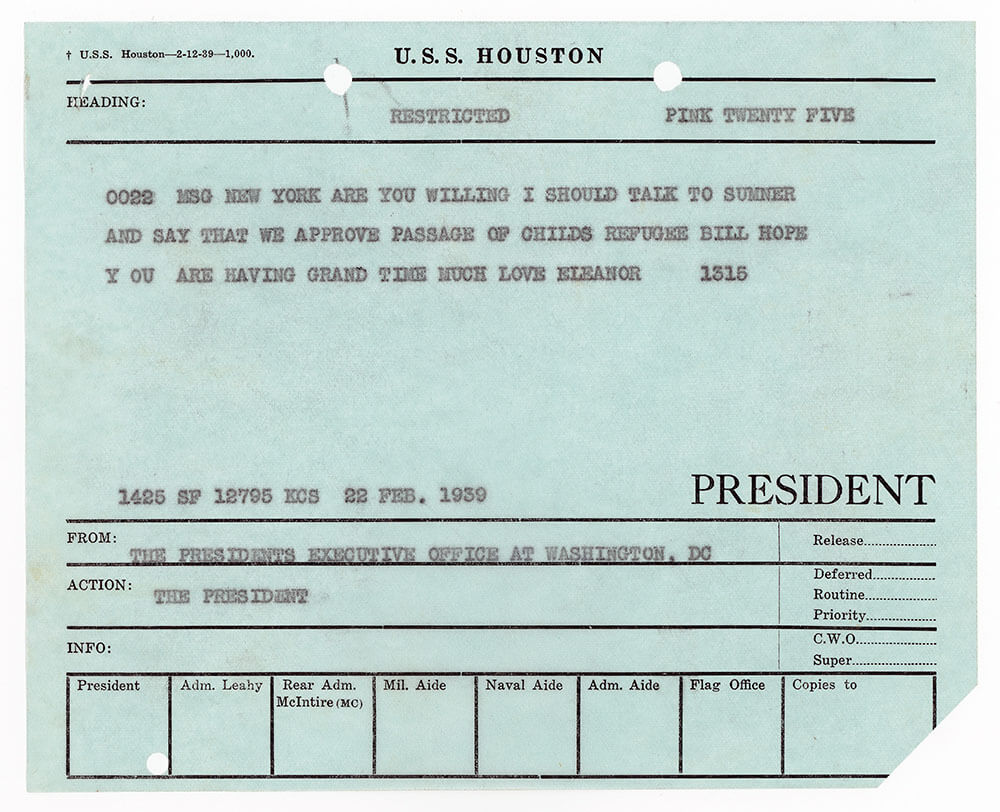
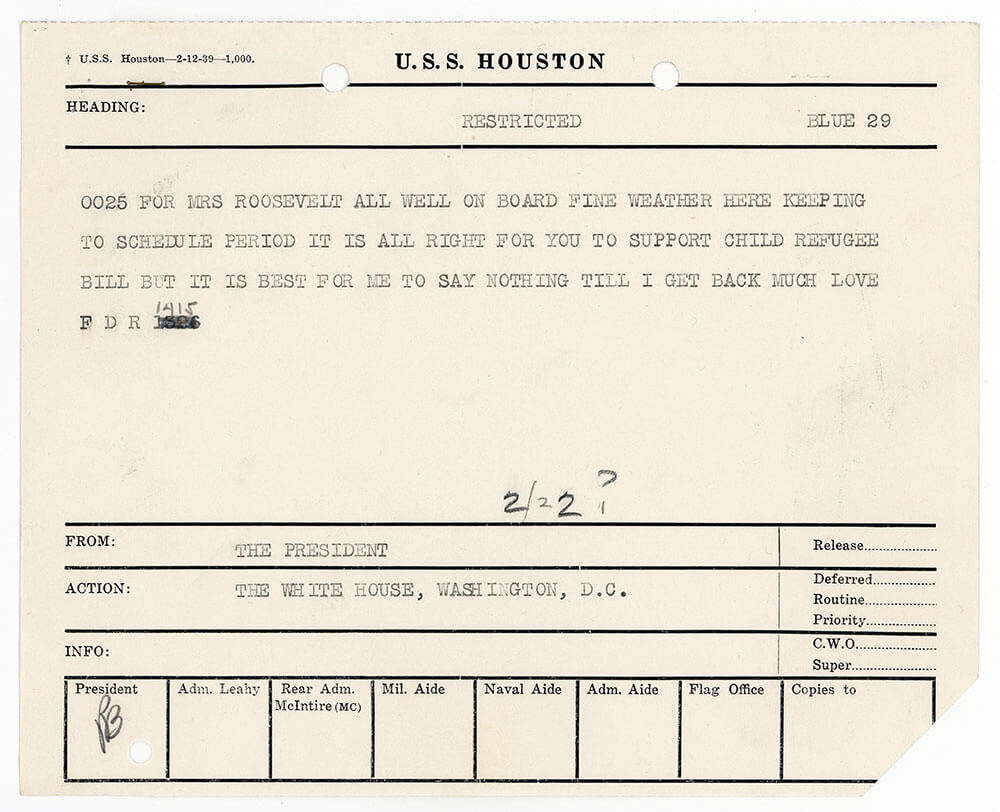
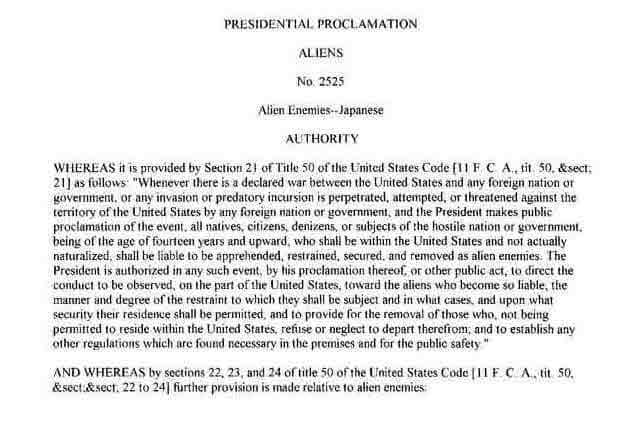


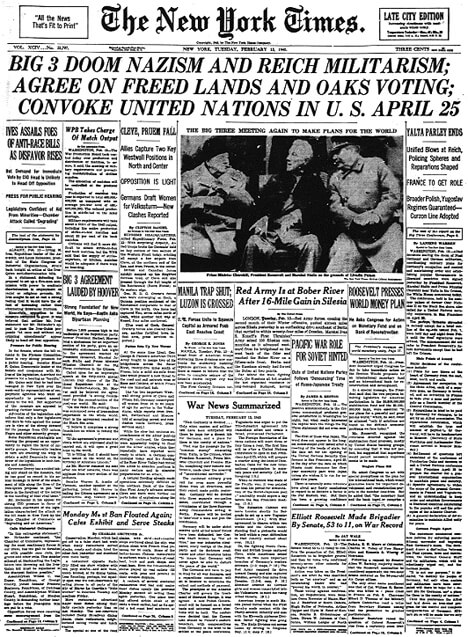
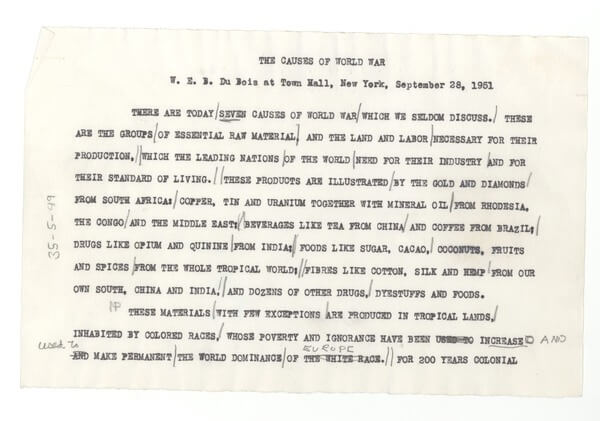
![U.S.S.R. Moscow, Mr. K[hrushchev] & V.P. Nixon on T.V. at American exhibit (1959)](/wp-content/uploads/2023/09/U.S.S.R.-Moscow-Mr.-Khrushchev-V.P.-Nixon-on-T.V.-at-American-exhibit-1959.jpg)
